|
Movies we've seen © 2004-2013 by John Varley; all rights reserved |
H
|
Habeas Corpus (silent, 1928) Laurel and Hardy are hired by a mad scientist to rob a grave and bring him the dead body. Spooky hijinx ensue, with open graves and guys in sheets. A pretty routine outing for the boys. IMDb.com Hail the Conquering Hero (1944) In 1944 everybody was making patriotic movies, so why shouldn’t Preston Sturges? But being who he was, he made a movie a little different than the gung-ho battle epics starring draft-dodgers like John Wayne. Eddie Bracken plays a guy whose father was a Marine hero, and all he’s ever wanted to be was a Marine. But he’s got chronic hay fever and is given a medical discharge. A group of real Marines takes pity on him, dresses him in a uniform, and more or less force him to return home, where he’s given a hero’s welcome. Soon the town has him running for mayor. He never wanted any of this, and he missed his chance to nip it all in the bud … so the question becomes, as in all these comedy of errors stories, how long can it go on, and how can he get out of it and still give us a happy ending? The answer is maybe not as satisfying as in other Sturges movies—it’s reminiscent of some of Frank Capra’s more far-fetched endings … but heck, I like Capra, too. IMDb.com Hairspray (2007) This is the best 2007 film I’ve seen so far, and it’s late July. Of course, there are many current films I haven’t seen yet, and many more to come, including the “Oscar contenders” bunched up as they always are late in the year, but this will do for Best Picture for now, until something better comes along. (Possibly the much-awaited Sweeney Todd?) There is only one reason I can think of for someone not to love this movie, and that is if you hate, just simply hate, musicals. I know there are such creatures, and I feel sorry for you. What do you do for fun? This movie rocks. It rocks and rocks and rocks, and then it rocks some more. The story is totally unbelievable, and who cares? That’s what musicals are about, they’re fantasies. Wouldn’t it be nice if fat girls could win dance contests? Wouldn’t it be nice if black and white could come together over the music we all love? I will buy the DVD, and these days that’s a pretty high compliment. IMDb.com Hallelujah! (1929) Here’s some of the publicity from the trailer of the original release. It really ought to be in one of those giant, dramatic, 3-D typefaces they used to use in those days: REALISTIC! EARTHY!...it pictures in dialogue and heart-stirring song the reckless love and the gripping drama of the Southern Negro...come to the dusky cabarets....the revivals and the baptisms! And on and on in that vein. It was re-released some years later and they made a new trailer, which is included on the DVD: THE FINEST ALL-COLORED DRAMA EVER MADE! Wow. Have things changed, or what? Back then there was a tiny niche for “ALL-COLORED” movies, and they were made for “ALL-COLORED” audiences. But King Vidor, one of the great early great directors, had a passion for making this one, which was designed to be seen by whites as well … and from that description (and I suspect it was the publicity department that came up with it, not Vidor), it sounds like a trip to darkest Africa to see the strange wildlife, doesn’t it? Which, in a way, I’m sure it was for most white viewers. Previously they had only seen blacks in supporting and usually patronizing roles. But for all its faults—and make no mistake, you will cringe many times watching this—blacks had never been portrayed so sympathetically for a white audience. I thought to myself, early on, “Damn, these Negroes sure do a lot of singing and dancing.” They sang in the fields, and they sang back at their shacks, and I’m sure they would have sung while eating tons of watermelon, but Vidor doesn’t go there. (They eat a lot of chitlins, though.) Then I realized this really was intended to be a musical,, with all the suspension of disbelief such a genre entails. Most of the music is worked into the plot, happening at times when people really would sing, but from time to time the hero, Zeke (Daniel L. Haynes) does a solo like Paul Robeson singing “Ol’ Man River.” Zeke is a sharecropper and a world-class fuckup. He loses a whole year’s cotton profits in a crooked dice game, gets his little brother killed, finds Jesus and becomes a very successful preacher … and then throws it all away again when Chick shows up. Chick (Nina Mae McKinney) is the shill who got him into the crap game in a first place, and when she wades into the river to be baptized with hundreds of others, Zeke’s eyes glaze over and he stumbles after her like Frankenstein’s monster, away from his church, his wife, his kids … jus’ cain’t resis’ dat evil woman, lawd! Okay, it’s offensive, it’s over-acted and over-written … but take a look at Vidor’s masterpiece Our Daily Bread, which is just as goofy and operatic to our eyes. That’s just what they did back then, they were still playing to the back rows of the Vaudeville theater, and vamping for the silent camera. So there are the usual stereotypes and unconscious racism you would expect in a film from this period, even a well-intentioned one. But the virtues of this film are many, as well. Chief among them is McKinney, who could have been Lena Horne if she’d had some better breaks. As it happened, she fled to Europe, like Josephine Baker, where they appreciated colored people. (She is actually “high yellow,” as several people in the film point out.) Her career in Hollywood was going nowhere, but in Europe she was appreciated as a singer, and was known as the Black Garbo. Also very good is some of the photography, most strikingly a chase through a swamp in the night. Amazing dramatic lighting. And don’t miss Zeke’s sermon at the outdoor revival. But all in all, for modern audiences it is mostly interesting as a period piece, something that, if it hadn’t been a “first,” would probably be forgotten. EXTRAS: There are two two-reelers on the DVD, the first one very good. They are both directed by Roy Mack, who did 114 of these things. I was unable to determine if Mack was white or “colored.” I suspect he was white. I doubt there were any black directors around back then. They are: “Pie, Pie Blackbird” (1932) Nina Mae is in this one. The idea is she bakes a pie, and it bursts open to reveal Eubie Blake and his band, all dressed in big floppy chef’s hats, playin’ up a storm! Not quite four-and-twenty blackbirds, but almost. The best thing here is the fabulous Nicholas Brothers, Fayard and Harold, who just may have been the best dancers ever to appear in a Hollywood film. I’m not kidding! They didn’t have Fred Astaire’s grace, but they could do things neither he nor Gene Kelly could do. I’d seen them before as adults. Here they are much younger, and already their talent was enormous. Look them up, you won’t believe it. “The Black Network” (1936) A trifle about a black radio station. Again, the Nicholas Brothers tear up the place … on radio! Reminded me of an old Stan Freberg skit, “The Zazaloph Family,” acrobats on the radio! “I wish you could see this, ladies and gentlemen, they’re forming a human pyramid …” IMDb.com Hamlet (1990) Mel Gibson kicks the shit out of Shakespeare. IMDb.com Hancock (2008) A total waste of time. It’s hardly worth mentioning how many ways this imbecilic movie goes wrong, but to name just a few … Will Smith is all wrong for this part. They seem to have started shooting without a viable script; I had the distinct impression that they were making it up as they went along. When does he have his superpowers, and when doesn’t he? No one seems to know. Bullshit explanations are made up, then discarded when inconvenient. It’s another technological marvel … but what isn’t, these days? However, unless you work in the industry and know all about this stuff, I recommend you rent the DVD, because the extras are really worth watching this time. I’m always a sucker for behind-the-scenes stuff. It’s always funny to see just how narrow the focus is when you're getting a shot. Put all your money on the screen is the adage, and the real pros do just that. If it’s an inch outside of camera range, it’s just not there. It’s all in the cutting, and these days, in the post-production SFX. So I’m sure we all know about the flimsiness of sets, breakaway props, flying by wire now that computers can make wires vanish. All very fun to watch. But the mind-blower was something the SFX man, John Dykstra, had to say. Technology is moving so fast, according to him, that he now makes plans to use devices, software, and techniques that don’t exist now, but will probably be on line by the time the principle photography is finished. Imagine that! Sort of like setting out to drive to San Diego with no brakes, trusting that you’ll invent something to stop the car before you get there. There are two things in these extras that blew me away. The first was what amounts to 3D animated storyboards. Storyboards have been used for a long time, not just in animated films, but in any action film. Now they’re not just pen and ink sketches, but very detailed action sequences. They showed the animated action side by side with the action as it appeared on the screen, camera moves, cuts, everything, and it was exactly the same. The second thing was something I knew was being done, but I’d never seen it done this way before. I’m familiar with motion-capture suits and masks. They have reference points in the form of little buttons that a computer senses, and then constructs a simulation which can then be fleshed out to look real. A lot of stunts are done that way these days, with people performing before a green screen. I believe Gollum was done this way, and many other characters that can’t be played by a regular human being in make-up. But the method they used in this movie was stunning. They were going for photo-real, moving faces, and to do that they covered Will Smith’s and Charlie Theron’s faces with tiny little white specks, then sat them in the center of a geodesic framework that had maybe 40 or 50 strobe lights pointed at them, 360 degrees around, above, and below. They turned the device on and it was exactly like some mad scientist’s wacko machine from some B SF movie of, maybe, the ‘60s or ‘70s. It was more interesting than the actual movie, Hancock, by far! It is already possible to dispense with sets. Sky Captain and the World of Tomorrow and The Polar Express were filmed entirely against green screens, and there have been others. Combine these two technologies and you can see that we’re not far away from being able to dispense with actors, too. Once you get Will Smith’s or Tom Cruise’s or Angelina Jolie’s (who was motion-capture animated in Beowulf) face into the computer they can give up all that rough and tumble stunt work that actors have to train for these days. (Wire flying looks like fun, but you have to learn some acrobatic tricks of balance, and it can be hazardous, as Charlize Theron learned on the set of Aeon Flux.) Then the big-name stars would only have to show up for a couple of weeks of the quieter scenes, the non-SFX scenes (if they’re still making movies that have non-SFX scenes), which would probably still be cheaper to do on actual sets that don’t have to explode. Nicole Kidman or any other bankable star could make a dozen movies per year, like the major studios used to do with their biggest stars. Even better, they wouldn’t have to get old! It should be child’s play to turn, for instance, an 80-year-old Cate Blanchett into young Queen Elizabeth again. Harrison Ford could do a prequel to Raiders of the Lost Ark, looking 20 years old. The possibilities are endless, and you’ll soon be seeing them in your Cineplex. IMDb.com The Hangover (2009) Second feature At the Drive-In with Public Enemies. IMDb.com Hanna (2011) The phrase that comes to mind here is, “Yes … but.” Yes, it has a lot of plot holes … but not nearly as many as your average thriller. Yes, there are things that weren’t adequately thought out … but it’s miles above most thrillers. Yes, you’ll find yourself asking questions about why this, and not that … but that’s really because most of it is thought out well enough that these smaller details stand out. In short, yes, it’s not as good as if could have been … but I enjoyed the hell out of it. A 16-year-old girl has been raised in the north woods somewhere by her father, trained to be a killer, and to be utterly self-sufficient in survival skills. There is a reason for this. The two of them really are in peril if they should return to “civilization,” where some very uncivilized people are waiting for them, led by an almost comic-book sinister Cate Blanchett … but I can’t reveal the reason. And I have to say that the reason didn’t measure up to my hopes. Still, when she decides to leave, her journey is endlessly fascinating. She has literally never seen another person. She is a fountain of knowledge memorized from books, much of it outdated. She knows what electricity is, for instance, but she’s never seen an electric teapot, or an electric anything. And she is utterly deadly. You do not want to mess with her. She is wonderfully played by Saoirse Ronan (pronounced Sur-shuh; those crazy Irish, huh?) who really is 16. In the end, I suspect it all comes down to this: It is infinitely more interesting to see a 16-year-old girl kick ass than any dozen muscle-bound spies, cops, or superheroes. It just is. IMDb.com Hannah and Her Sisters (1986) Woody Allen has written and directed 43 1/3 movies, pretty much one every year since 1966. He is in the enviable position of apparently not having to worry if they make a lot of money, since they don’t cost a lot to make. One film every year, like clockwork. Naturally, they vary in quality, and some will disagree on which are the best and which not so hot, but I think almost everyone will agree that this one is in his Top 5. I’ll bet a lot would pick it as his best. I won’t pick, but it is very, very good. One of his best stories, with multiple characters that are all interesting in their neuroses and good and bad points. He is superb with dialogue, and works well with actors, who repay him by falling all over themselves for the chance to work with him for not much money. One of the movie’s strengths is that Woody himself is a minor character. Sorry, Wood-man, but you’re not that great an actor, most of the time, and when a film focuses on you it often suffers for it. (Exceptions: Annie Hall, Manhattan, your early, comic films, a few others.) Michael Caine won his Oscar here, and very much deserved it. IMDb.com Hannibal (2001) One of the all-time great let-downs, both book and movie. IMDb.com The Happening (2008) M Night Shabadabadoo is the George W Bush of movie directors. Remember in 2001, Bush’s ratings were sky-high, up in the 90th percentile? Then began a steady decline, as everybody learned what smart people (like me and everyone I know) already knew: that he was a disaster at everything he ever attempted. M Night (I wonder what his friends call him?) began in the stratosphere, with The Sixth Sense, a brilliant, genuinely startling movie. People were talking Polanski, or maybe even Hitchcock. Then he made an okay movie (Unbreakable), then a stupid movie (Signs, which was nevertheless a big hit, so those of you who liked it and spent your money on it are responsible for M getting the funding for future crap, and aren’t you sorry now?), then a damn awful movie (The Village), then a movie reviewed so badly I didn’t even bother to see it (The Lady in the Water), and then this … abomination. From the heavens to the toilet, just like W. (Say, M is W upside down …) Only difference is that M deserved his initial adulation, and W did not. I wouldn’t have seen this one, either, except that I’d recently seen Speed Racer because one lonely critic liked it. (He was only part right; it is visually stunning and worth seeing, but sucks in most respects.) In this case it was Roger Ebert, who said he liked the development, the fact that we don’t see any screaming crowds in this disaster film, just small groups of people trying to survive. Well, I should have known better. Usually, when Roger is a minority of one, he’s wrong. This time, he was at least partly right, but it was such a small part that I can’t forgive him. M is very good at setting the scene, at giving us some bits of business that work. Here, groups of people are suddenly coming to a halt, then walking backwards, and then calmly killing themselves, sometimes in bizarre ways. This is eerie. But even this loses its power when we begin to discover the so-called “reason” this is all Happening. (And is that a lame title, or what?) The hero figures things out, stupid as these “things” are, quite handily and with no evidence whatsoever. There’s no need to go on. The movie becomes so dumb on so many levels that there’s no point in discussing them. If you make the mistake of watching this turkey your only possible amusement will be counting the idiot plot points. I can find only one good thing to say about this movie: It’s only 91 minutes long, and at least 7 of those are end credits. Would that it had been shorter. IMDb.com Happily Ever After (Ils se marièrent et eurent beaucoup d'enfants) (French, 2004) A completely humdrum French adultery comedy. They used to do these things a lot better than this. There seemed no point to anything, just some people I didn’t like very much either cheating on their spouses or thinking about it. A waste of time. IMDb.com Happy Endings (2005) I have to put this movie on my list of things I've seen because I try to be complete. But I can't review it. Professional reviewers aren't supposed to admit stuff like this, but I'm just a guy who writes what he thinks about movies, and I'm going to admit that when we saw this last night I was feeling exhausted and a bit depressed and I'd had a mild headache for two days. I kept thinking I should be liking the movie more than I was, that it just wasn't coming together for me though all the elements were there. That could be because the movie wasn't assembling it all well, or it could be because I was just feeling lousy. I'm not going to bad-mouth a movie I saw under those circumstances, so take this as an entirely neutral and useless "review." (I will say that I found the auctorial asides revealing future events and the screenwriters' opinions seemed lame, and a distraction.) Maybe Lee will have something to add. She seemed to be enjoying it. It wasn't THAT bad. The characters weren't very engaging, except for Jude, played by the always amazing Maggie Gyllenhaal. We talked about her a lot afterward. IMDb.com Happy New Year (1987) ... is a remake of La bonne année, a 1973 film by Claude Lelouch that is, by all accounts, a lot better than this one. But since I haven't seen that one, I came to this one unprejudiced, and I have to say I enjoyed it quite a bit. It begins as a simple heist movie, which isn't bad at all, but in the middle it turns into something quite different, and that's even better. It's a showcase for the talents of Peter Falk, and who doesn't like Peter Falk? I loved him as Columbo, and the funny thing is, I have never seen an episode of "Columbo" in its entirety. Imagine that, learning to love a character through simply glimpsing little bits of business here and there while the TV happens to be on. If you haven't seen it already, check him out playing himself in Wim Wenders's brilliant Wings of Desire (Der Himmel über Berlin). There is also Charles Durning, one of my favorite character actors, and Wendy Hughes, a cool Grace Kelly type who should have been better known by now. IMDb.com Happy-Go-Lucky (2008) Every once in a while a movie comes along and it’s met with almost universal acclaim … and I don’t like it. I’m not talking about overblown comic book movies like Sin City or The Dark Knight, because I don’t care why anyone could (inexplicably) like them. The former was beautiful but crap, and the latter was just vastly overrated. I am confident in these judgements. You may very well disagree with me (most movie-goers apparently do), and that’s fine, but I won’t lose any sleep over it, because I’m right and you’re wrong! But here’s a small, thoughtful, heartfelt movie on a human scale, dealing with human beings. It got an 84 on Metacritic, and a 93% at Rotten Tomatoes. It’s exactly the sort of movie I should like. And I didn’t. This is the sort of viewing experience that does make me doubt my own opinion. Was I just in a foul mood? But then I found the minority opinion, expressed … guess where? In the viewer comments section at Metacritic. There were a lot of people who felt the way I did, so at least I know I’m not crazy. Poppy (Sally Hawkins) is without a doubt the happiest, bubbliest, most positive-thinking little imp ever put on the screen. Very soon, I wanted to kill her. She makes Pollyanna, Pangloss, and Candide look like pessimistic, sour old grumps. (Gee, putting it that way … how could I not dislike her?) I was with her, more or less, when she tried to brighten the day of a few grumps early on, and reacted to the theft of her bicycle with a smile and a shrug of the shoulders. Oh, well! It would be nice if we could all rebound from something like that so easily. After all, it’s just a thing, right? No big whoop. I think she would have the same reaction to World War III. But it went on and on. She ended every sentence with a giggle that soon had me gritting my teeth. Then she started in on driving lessons with a man who was obviously seriously disturbed. She seemed absolutely incapable of taking him seriously, which is all he wanted from her. Okay, maybe she can’t take anything seriously … and yet, soon after, we see that in her job as a primary teacher (which she is good at, I’ll give her that, kids that age respond well to over-the-top behavior) she takes it very seriously when one of her pupils is acting aggressively, and helps a social worker discover that it’s because the kid’s mother beats him. But I began to wonder if she was intentionally needling the crazy driving instructor, knowing that her ditsy affect would drive him nuts … which was a dangerous game to play. I finally concluded that she was one of the most egocentric movie characters I’d ever seen. No point in going on. Chances are you will like Poppy. I didn’t. Ditto. IMDb.com Hard Candy (2005) There's a lot I'd like to say about this film, but I can't get started without a small SPOILER WARNING!!! I say small, because I think just about everybody knows about the twist that occurs about 15 minutes into the film. Hell, it's given away even by the picture on the DVD box. Which leads me to muse ... in these days when so many more people are paying so much more attention to movies many months or even years before their release, is it still possible to spring a real surprise on the audience? I guess it is, but it's a lot harder, and you almost have to close your ears to be unaware. And the studios even help you out, with things like the box cover. I mean, I get the feeling that if Psycho were released today, instead of saying "Do not reveal the ending! No one will be seated during the last half hour!" the posters would say "Janet Leigh dies halfway through!" And "Tony Perkins is really his dead mom!" When was the last time I was really surprised in a major way, not just little plot twists? Well, there's been a couple of times. I didn't know in The Usual Suspects that Kevin Spacey was really Keyser Söze (oops! Hope you didn't know that already!). And I also say small because the surprise really comes early, so the movie is not spoiled by knowing that she is stalking him rather than the other way around. But it would have been nice not to know ... This is a real thought-provoker. There are so many things to think about here, from gut reaction to intellectual exercise. Is it really believable that a 14-year-old girl could be as smart and cunning as portrayed here? Not really, but hey, 99% of criminal masterminds in the movies are way smarter than just about anybody in real life. I can accept it as a fictional device. What are your thoughts about torture? I'm agin it ... except in those very, very, very rare instances when it might become absolutely necessary to get some information very, very, very fast in order to save a life. The sort of situation in the original Dirty Harry movie, for instance, where a woman is buried alive and only one asshole knows where she is. I'd have gutted the sonofabitch slowly and fed his intestines to him ... and I would have expected to be fired and probably indicted for it later, as would be only proper. Or the sort of once-in-a-lifetime situation Jack Bauer apparently encounters at least once every hour in the TV series "24." (I've never seen it, but that's what I hear.) Or for being Iraqi and living in Baghdad ... wait a minute, that's Dick Cheney's standard for legitimizing torture, not mine. Most people I know are solidly against torture, usually without even the above exceptions ... except in one case. Pedophiles. Child rapists and murderers. I have lost track of the number of times I've heard otherwise peaceful, loving people—the majority of them women—recommend cutting their fucking dicks off and/or castrating them, with or without anesthetic. This movie makes you confront that ethic. It grabs you by the nape of the neck and thrusts you face-first right into the scrotum and let's you watch ... though there isn't a speck of gore in it. There doesn't have to be. Showing Patrick Wilson's face as he is subjected to the procedure (or is he?) is graphic enough. Still want to castrate 'em? Hell, I still do, but is Ellen Page as the 14-year-old surgeon having maybe a little too much fun as she cuts? Is she enjoying it as much as the baby-raper enjoyed his underage sweeties? As if all this weren't disturbing enough, there is another creepy thing going on, as Roger Ebert pointed out. Some men like being tied up and hurt. Do you think they might get their rocks off on this film? Personally, I doubt it. Bondage is playing-acting, usually, and the guys who like it want to be screamed at, dominated by an older woman with whips and chains and leather, not toyed with by a barely-pubescent girl. And yes, there are guys who are turned on by castration, and not even the fantasy of it but the real deal (there are actual websites devoted to this, believe it or not), but that's a very small and very sick minority. One review said this is one of the movies that when you leave it, you'll be talking about it with your friends for a long time, and you probably won't come to any easy answers. I agree. It challenges you, again and again and again, as you learn more about the pedophile (and, at first, you aren't even sure if he's a pedophile or just a slightly creepy voyeur) and more about the girl. I'll say no more about that. See it and decide. There is only one flaw in the pic. The movie is a verbal and physical duel between two people, and it should have been left at that. There are two other people who appear briefly, and they were entirely superfluous to the relentless thrust of the story of the two. It was a waste of screen time and a distraction to bring in the outer world. The only world that existed, for these two, for a short while, was the house and their anger and fear and the past that was dragged out like a bloody testicle or a monster baby, kicking and screaming. Patrick Wilson is very, very good here. He is called on to do some suffering most men don't even want to imagine, and do it for long periods of time. But he is totally eclipsed by Ellen Page, who was 17 at the time but looks 14. She makes Glenn Close in Fatal Attraction look like Glinda the Good Witch, and she never has to scream and froth at the mouth to do it. There's not even a hint of insanity. She knows exactly what she's doing, and why, and she stays three steps ahead of her quarry most of the time. Even when he seems to gain a momentary advantage, she turns out to have been one step ahead of him. This has got to be one of the most empowering roles ever for a woman. IMDb.com The Hard Way (1943) Generally considered to be Ida Lupino’s best role, and one that Bette Davis passed on, and later regretted. It is also said to have been inspired by Ginger Rogers’ mother, but I wonder. It’s true that Lela Rogers was deeply involved in Ginger’s career, but nothing I’ve read makes her out to be the scheming, back-stabbing stage mother (actually, big sister, they changed that so Ginger and Lela wouldn’t see themselves in the picture) portrayed here. In fact, Lela seems to have been liked and respected. Maybe there’s more info in a tell-all books somewhere, but I don’t really care. I’ve never been much interested in Hollywood dish and dirt. Just repeating what Robert Osborne said before the movie started. Ida is married to a loser in some forsaken hole of a steel or coal town, with her little sister, Joan Leslie. Both of them are desperate to get out. Then the third-rate Vaudeville song and dance team of Runkel and Collins (Jack Carson and Dennis Morgan) blow through town and see little sis performing impromptu in a malt shoppe. Poor sap Jack falls hard for her, and the next thing we know all four are on the road, with Joan dancing around as the team sings their lame songs. But Ida has her eyes on bigger prizes. It is a shock to her when Joan marries Jack, but she makes it work. She schemes, she betrays, she gets an alcoholic has-been ex-star drunk so she loses a part that’s just right for little sis, she does everything in her power to get Joan an audition with the movers and shakers. Soon she is offered a big part, and Jack agrees they should break up the act so she can have her shot. And she goes right to the top, while Jack and Dennis are getting booted from worse and worse toilets around the country. In full-blown sap mode, Jack barges into Joan’s opening night party and makes an ass of himself. He goes home and blows his brains out. I’m surprised it didn’t take him three or four tries to hit his brain. He must have been a good shot. Dennis has been onto Ida all the time, and he’s bitter, but he really doesn’t have any moral leg to stand on. He seduces and abandons a new girl in every podunk whistlestop. And Joan really did love the dope; she just loved her career more. But Jack’s suicide sends her off the rails into depression and alcoholism. Her career is very much in jeopardy. Then she hies herself off to Saratoga where Dennis has formed a new band and is quite successful. Sparks fly, Dennis reveals he has always been in love with her, they decide to get married … and guess who shows up? And guess who convinces Joan she has to open this new play in New York? And guess who won’t marry Joan unless she basically gives up her career for him? Nobody to really like here. Ida is a nightmare of control. Joan is too easily controllable, and really liked being in the limelight more than anything else. Dennis is a cad who seeks to control Joan as her husband just like big sister did. Joan has a nervous breakdown on stage, everything falls apart, and we end up where we began, with Ida throwing herself off a pier, being saved, and telling her story in flashback. Which was the idea of Jack Warner, who didn’t want her to appear unglamorous, a dingy housewife in a crappy town, right from the first shot. So you can be sure she’s dressed to the nines, coifed and made up when she steps off that pier. IMDb.com Harlan Ellison: Dreams With Sharp Teeth (2008) Harlan and I had been corresponding for some time—this was back in the late 1970s—when my travels on the way to a convention took me through Los Angeles. I arrived at LAX only to find that my connecting flight had been cancelled, and I had seven or eight hours to kill in one of the world’s most boring places. I decided to call Harlan, just to talk for a while. “Hop in a cab! I’ll pay for it! Come see me!” (Harlan always speaks in italics, usually with an exclamation point.) I had to explain that I was dirt poor, didn’t have enough cash on me for a cab. “Rent a car!” he said. “I’ll pay for it! Come see me!” I had to tell him that I didn’t have a credit card. “No problem, here’s my Hertz number, go to the desk and they’ll give you a car!” I did, and they wouldn’t. No way, no how. They had to have the card in hand. No exceptions, never, never, never. I called Harlan back. By now he was seeing this as a challenge, almost an insult, and you do not insult Harlan Ellison. “Go wait by the Hertz desk,” he said. About half an hour later a slightly dazed looking supervisor beckoned me over. (Harlan has that effect on people.) I’ll never know what charms, threats, bluster, or magical spells he used on the poor woman; I don’t want to know. And this was on the phone, mind you, where he could only use a fraction of the sheer force of will available to him. Here, take the car! Just take it! So I signed the papers, took the car, drove to Harlan’s fantastic house in the hills of Sherman Oaks, and spent a pleasant several hours being shown around, dining on ribs from a joint down in the Valley. Then back to the airport and on to Phoenix on the late flight. That’s my favorite Harlan Ellison story. I have others. There are many more Harlan stories in this excellent little movie, filmed over the course of almost 30 years. Absolutely a must see movie! Buy it! If you can’t afford to, rent it! IMDb.com Harold and Kumar Go to White Castle (2004) H & K smoke some really good dope, get a gigantic case of the munchies, and nothing will do but that they consume mass quantities of sliders at the grease palace we don’t have out here on the Left Coast. It becomes a quest, which takes them through Princeton University, jail, and a ride on a wild cheetah which they turn on to some dope they’ve stolen from the police. That’s right, a cheetah, in New Jersey, and it’s not explained, it’s just there. There’s a certain kind of stoner-type movie that I usually don’t like. I think it’s because the stars are usually not only stoned, but dumb as rocks even then they’re straight. There are exceptions, like Bill & Ted’s Excellent Adventure, where the guys are stupid, but so endearing and basically good-hearted that I don’t mind it, and the script was smart. Harold and Kumar are pretty bright guys who just like to get really baked on the weekends. They are very different, but alike in one crucial way: they are neither white, nor black, nor Hispanic. They are the neglected minority, guys from overachieving cultures: Korean and Indian. This provides a base for the looniness that follows. You’re not expected to believe any of this, and yet you can like the characters and laugh at their ridiculous adventures. Some of it didn’t work, but enough of it did that I had some good laughs. Recommend you skip the movie and go directly to The Art of the Fart (see below), the ONLY good thing about HAKGTWC. Watching Varley having a major laugh attack for ten minutes was pretty funny, too. IMDb.com The Art of the Fart (2004) I was about to put the disk back in the box when I noticed this. What the heck. Ten minutes later I was hurting from laughing so hard. It’s funnier than the movie! There is a gross-out farting / diarrhea scene in the film, and this is a short that purports to be the story of the sound engineer and the director and how they struggled, artistically, to get the sounds just right. It is solemn and self-important, just like most of these DVD “extras,” and it actually had me fooled for maybe a minute and a half, as my jaw kept dropping lower and lower. Okay, maybe two minutes. Then I realized just how hard they were pulling my leg, and I was off on a giggle spree. DON’T MISS THIS! Harper (1966) Paul Newman plays Ross McDonald’s Lew Archer (re-named Harper because Paul wanted another movie beginning with H, like Hud and The Hustler, and the next year, Hombre) and it’s lots of fun. He would play Harper again ten years later in The Drowning Pool. We enjoyed the Los Angeles settings, and the story is good, with lots of twists and turns, but for those of us who grew up in this era, there are some embarrassments. Pamela Tiffin’s hair, for instance. God, what is she growing in there? So many movies of this day had bikini-clad women dancing alone to music on the radio: the Frug, the Watusi, the Funky Chicken, the Mashed Potato … there was a new dance craze every Saturday in those days, forgotten by the next Saturday, and they are all stupid-looking now. So she dances on a diving board and the camera lingers on her. Looks very stupid. Sounds even more stupid, as all movie studio “rock and roll” in those days sounded vaguely like the Tijuana Brass, only not as good. Even worse than Tiffin alone is a whole roomful of people doing these lame dances. This was William Goldman’s first solo movie script, and he’s written about the experience. One funny episode involves the first few minutes. The film was in the can, but then the producers decided they needed something to go under the opening credits. They told Bill to write something, so he sat down and knocked off a few pages very quickly, involving Paul Newman getting ready for his day. He’s lying in bed with his eyes open, the alarm going off. Eventually he shuts it down, gets up, turns off the humming TV with the test pattern (test pattern! How long since you’ve seen one of those?) and goes into the kitchen. Starts to make coffee. Realizes he’s out of grounds. Frustrated … then he looks into the garbage. There’s a filter with some old grounds on the top. He grimaces, hesitates, and pulls the grounds out of the garbage and puts them in the coffee maker. Simple stuff, right? But Goldman said he was astonished to be sitting in a preview audience and hear them roar with laughter when Newman did that. He realized he had struck a note with a lot of people, without even realizing he was doing it. Which was one more confirmation of his Hollywood Universal Rule: NOBODY KNOWS ANYTHING. Surefire hits flop, films that have been written off as hopeless end up with the Best Picture. NOBODY KNOWS ANYTHING. Which is really scary in these days of $250,000,000 budgets. Like John Carter, well on its way to being the biggest flop of all time. Somebody signed off on that budget, and he no longer works for Disney. He might as well have signed off on his own death warrant. IMDb.com Harry and Tonto (1974) Art Carney pulled off an incredible feat by winning the Oscar for Best Actor. He had to have been the darkest of dark horses that year. Just look at his competition: Dustin Hoffman in Lenny, Al Pacino in The Godfather, Part II, Jack Nicholson in Chinatown, and Albert Finney in Murder on the Orient Express. Fantastic, fantastic performances, all of them. And I am happy for you, Art, really I am, but I have to say that Jack was the best that incredible year. But hell, Jack’s got three of them, and this one must have meant so much to Carney, who’s complaining? You know what I can complain about, though? Look at that list of movies and tell me how long it’s been since there have been that many absolutely unforgettable, classic masterpieces in one year? Add in The Conversation, and that’s just the films that were nominated for the Oscar. These days we’re lucky to get one, maybe two. Some years we don’t get any at all. The 1970s truly were the last golden age of great movies. This is a damn good one, too. Harry Coombes is a crotchety old fart and a sometime pain in the ass, but you learn to love him pretty quickly. He’s evicted from his apartment in New York and goes to live with his son and the son’s family in Jersey or some damn place. It’s not working out. His son really wants to do good by Harry, but he’s just not fitting in. He decides to visit his daughter (Ellen Burstyn) in Chicago. But he can’t take his beloved cat on the plane, and the bus doesn’t work out, so pretty soon he’s pootling along in Ohio or some damn place in a blue Chevy he bought for $250. He meets a lot of interesting people, gives the car to a hitchhiking couple he meets, and soon has his own thumb out. You keep expected big trouble, but it never happens. You keep expecting him to get sick and/or die, and it never happens. He’s having the time of his life. He gets laid by a hooker on her way to Vegas, using up the last of his cash money. He gets drunk and thrown in jail, meets an Indian (good old Chief Dan George!) who heals his bursitis. He finds his other son (Larry Hagman) in Hollywood, a man with big dreams who has been a failure all his life, can’t even pay the rent. He winds up in Santa Monica … and that’s the end. Tonto dies, but you’re left with the impression that Harry still has a lot of living to do out there on the beach. A thoroughly enjoyable movie. IMDb.com Harry Brown (2009) Basically this is Death Wish warmed over, and in England. Sub-human young people terrorize a housing development (which I think they call “Council flats” over there) until elderly ex-marine Michael Caine has finally had enough and starts to kick some butt. Parts of it are good, but it eventually degenerates into a mad riot that I didn’t believe for a moment. Emily Mortimer is given a thankless part as a police detective who suspects Harry is killing the neighborhood scum, and there are some attempts at a political message, but in the end the only thing good is the absolutely reliable pleasure of watching Michael Caine work. He’s great, even in a bad movie. IMDb.com Harry Potter… Here will be our greatest challenge in our project to re-view some of our favorite series movies. You know, those rare ones where the sequels are almost as good as the originals, of which there are only a few. There is a lot of Harry Potter to watch … This series of 8 movies is really an extraordinary achievement. If you don’t think so, just pop in the DVD of the first one and compare the three leads, Daniel Radcliffe, Emma Watson, and Rupert Grint (what an unfortunate name!) to what they look like in the last one. Such children! Babies! Of course, you can see child actors grow up all the time on series television, but I hardly watch any TV, and certainly no sitcoms with sickeningly precocious children who spout lines no child ever uttered, and that’s all such sitcoms. But I’ve never watched it happen in the movies. I suppose you could pick a child star, say, Shirley Temple, and watch her films consecutively, but she is a different character in each one, with a different story. Here, we have one story that happens over 8 long movies. Though there were two years when no Harry Potter movie came out, the ages of the kids are damn close to what they should be as the story continues. Ten years of growth. All three of those kids are rich now, as they deserve to be, as they all started out as pretty good actors and just got better as they went along. What a phenom the Harry Potter thing is. I have no idea how much money the books made for J.K. Rowling (she is reputed to be a billionaire, but that includes the movie rights), but I just did some quick calculations of how much the movies made … not even counting all the tie-in products, which she has been very stingy with, and about which everyone agrees she could have made further billions if she had just let them make any damn Potter product they wanted to make. Control! It’s all about keeping control, and she has to approve everything. The seven movies released to date cost about $1,400,000,000 to make, and took in $6,227,000,000 at the B.O. I think it’s a safe bet that HP&tDH2 will gross right around a billion dollars. The least popular of the seven grossed $795 million. It’s interesting to me that numbers like that no longer make one’s head spin … though I’m sure they cause a lot of ulcers in the film industry. The last three have each cost around a quarter of a billion dollars to make. The eight movies (including an estimate from Wiki of 125 minutes for the last one; if it’s only that long, it will be the shortest of the bunch) have a running time of 17 hours and 34 minutes. That’s the biggest part of a whole day! We aren’t that crazy, we will view them over a week or more. So, here we go … … and the Philosopher’s (Sorcerer’s) Stone (2001) In a film series, either a continuing story or a series of sequels, the first one is, for me, always the best, pretty much by definition. The following ones may be more elaborate, with CGI techniques improving so dramatically each year, it may have more of what you liked in the first one. It may be a lot of things, but there is one thing it cannot be: NEW. It cannot ever recapture the awed delight you experience when you’ve just seen something you never saw before. Star Wars is the best example I can think of. There is just no way they can ever recapture the wonder of those opening five minutes, where the first spaceship passes over your head and you’re amazed … and then the Imperial Star Destroyer looms over you, and over you, and more and more and more of it. Can’t be done. That first time is a level of magic that can’t be recaptured. You may disagree, you may have an example where Part Two or Part Six was better (some feel that way about Alien and Aliens; I do not), but it’s never happened to me. So it is with HP&tPS. (I say PS instead of SS because that was Rowling’s original title. I wish I knew why the American publisher thought the Philosopher’s Stone was too heavy a concept for American kids. We may not be well educated, but we’re not that stupid. They could have just explained it.) From the very opening scenes I was mesmerized, enchanted, by a world I’d never seen. I laughed aloud at all the owls surrounding 4 Privet Drive, Little Whinging, Surrey, and at the explosion of letters down the chimney and through the letterbox. Every tiny element of this film was designed (by Stuart Craig, who deserves a Special Oscar) to jar your senses away from the ordinary world, into the world of wizardry. Just look at the sets! The floating candles in the Main Hall of Hogwarts, Diagon Alley with its buildings leaning over the cobblestones, Flourish & Blotts bookstore, Gringotts Wizarding Bank, Ollivanders wand shop, Hogwarts itself … place after place, you just want to slow down so you can take a better look. (And I guess you can now, with the opening of Harry Potter’s Wizarding World in Orlando, also designed by Craig.) Luckily for all of us, J.K Rowling was already a Big Deal by the time the rights to these novels were sold, and she was no fool. She knew she had the studios over a barrel, they all wanted them, so she retained a great degree of creative control. Everyone involved who has ever spoken of it has praised her, saying she didn’t interfere, that she understood that a film is not a book, but she had approval of scripts and of any changes in the story. She has professed herself delighted with how they came out, and I think she is right. Seldom have any books been so well-adapted. Only a purist who would have demanded something like 60 hours of screen time—clearly impossible, except on TV—could carp about what was changed and what was left out. I was fascinated to hear that one thing she didn’t get was her first choice of director for the first film: Terry Gilliam! Now, I am a huge Terry Gilliam fan, but I’m not sure he would have been right for these films, unless he toned down his wackiness a great deal. Maybe he would have. I don’t know if he turned it down, or was busy, or what, but Chris Colombus did a fine job, without being obtrusive. Many of the casting decisions were in line with what JK had in mind when she was writing, such as Robbie Coltrane as Rubeus Hagrid, one of the most beloved characters in the series. Maybe not the brightest guy who ever tamed a basilisk (“Oh, my, I shouldn’t have said that!”), but somebody you definitely want on your side. And as I said, there is a new delight about seeing this early film after ten years, and that is seeing these actors as children. It’s like flipping through an old family album. “My, how young you look there, Jim Bob!” “Well, I was young, Aunt Betsy.” IMDb.com … and the Chamber of Secrets (2002) JK Rowling has said she had the whole plot of seven books all worked out in her head from the very beginning. I believe her, but I suspect that a lot of elaboration got added as she went along. I’m sure she knew all the secrets of Voldemort, Dumbledore, and Sirius Black, and knew why Harry survived when his parents were killed, but I find it hard to believe she worked out all the details of Harry Potter and the Deathly Hallows during that famous 4-hour train ride from Manchester to London. Whatever, the great complexity of the overriding story, which was really only hinted at in the first book, begins to be really elaborated here. One of the main reasons we’re seeing them all again is because by the time of the most recent one we saw, Harry Potter and the Half-Blood Prince, both Lee and I were pretty befuddled by a lot of the things that were going on. Was Sirius Black a good guy or a bad guy? Who was this, and who was that? What went on in the previous books? My memory for plots is not good at the best of times; string out eight films over ten years and I’m hopeless. This one lives up to the promise of the first one (they all do, in my opinion). Some of the delights: Moaning Myrtle, endlessly trapped in the girl’s loo, diving into a toilet when she’s angry. The Whomping Willow, quite a dangerous plant to have around children. (But then, all of Hogwarts is a dangerous place.) Kenneth Branagh as Gilderoy Lockhart, the teen heartthrob so full of himself, so phony, and, in the end, so cowardly, he might as well be a Bad Guy. The flying car, which I have learned is a Ford Anglia. Not so great: Dobby the house elf, who at least at first is a whining pain in the ass. But he redeems himself. A few words about quidditch. There is a match in almost every movie, and they make for exciting action sequences (though the level of SFX in the first ones is not as great as later; you can see these aren’t real people on the brooms). But am I the only one who has noticed that it’s a stupid game? That the rules are … well, idiotic? Imagine this, if you will: The Giants and the Jets are playing football. It’s a slaughter. The score is 9000 to nothing, in favor of the Jets. Then, without warning, the ref throws a gold doubloon into the air. The Giant QB grabs it before it hits the ground. Score: Jets 9000, Giants 150. Giants win! What is the point of giving the Giants 150 points when snatching the snitch ends and wins the game? What is the point of dodging all those murderous bludger balls and sweating to throw the quaffle through the hoops (10 points)? Why bother? Just devote yourself to finding that little snitch and pointing it out to your seeker. Without the snitch, quidditch becomes a sensible game like dozens of others from soccer to lacrosse to buzkashi to horse polo to water polo to elephant polo (yes, they play that!) where the object is to get a ball into a goal, only played in the air by jet fighter pilots! That’s exciting, and it makes sense. Quidditch doesn’t. IMDb.com … and the Prisoner of Azkaban (2004) It’s remarkable that they have gone through eight films now with very few cast changes. In fact, the only one I am aware of is that of Dumbledore, because Richard Harris had the bad taste to keel over dead from a lifetime of heavy drinking after HP&tCoS. He was replaced here by Michael Gambon, and both of them did an excellent job in the role. They also replaced the original director with Alfonso Cuarón, best known in this country for Children of Men and Pan’s Labyrinth. He brings a slightly different sensibility to the movie—as in the Whomping Willow several times whomping poor innocent little birdies—and here is where the story begins to get really complicated and a lot darker. As well it should. The wizarding world has always looked irresistibly fun, but you know it’s not fun for Harry, who is facing real adult dilemmas before he’s really ready for them. The soul-eating dementors are truly scary. All three children have grown, showing the first signs of puberty. There’s definitely something under Hermione’s sweater now, and Harry’s and Ron’s faces have lost a lot of baby fat. There was a two-year gap after the last one, so the kids are actually 14, not 13, but it doesn’t matter. Harry is much more angry in the beginning, like an adolescent, but by the end his anger is more controlled and, you sense, deadly. He stands up to the vile, bullying Draco Malfoy several times, revealing him to be the coward he is. The time travel twist at the end is well done. New character: the ditsy Divination Professor Sybill Trelawny, played by Emma Thompson. IMDb.com … and the Goblet of Fire (2005) I haven’t said much about the plots of these movies, as I often do not in these reviews. I figure if you want to know the plot, you can read any number of other reviewers, or go to Wikipedia. But this one is an exception, as it is really nasty. After the Quidditch World Cup is cancelled due to Death Eaters (it’s held in a really neat stadium that must have been made by magic, towering vertically over the playing field) it is announced that Hogwarts will be the host to the “Triwizard Tournament.” Three schools will each send a champion to compete for a cup. They will be selected by the Goblet of Fire. After three are chosen, Harry’s name comes out, too, forcing him to compete way over his head. First, they have to fight a dragon, then they have to retrieve something precious to them that has been put—by the schools, apparently—at the bottom of a lake full of ugly creatures. They have an hour, and figuring out how to breathe underwater that long is their problem. Cutting to the chase, the “precious things” turn out to be people. Ron, Hermione, and two others. They are floating there, chained. I guess they are in suspended animation, because they aren’t drowning, but the clear implication is that, if somebody doesn’t rescue them, they will be dead. Whoa! Has anyone thought about the ethics of this situation? To me this is a real breathtaking lapse in the moral universe of Harry Potter. They kidnap and drug minor children and put them in danger of their lives, and the only way they can be saved is by the heroics of another student? I mean, if the authorities are not going to let them drown if the hero fails, what’s the point of the exercise? Say Harry surfaces, having failed, believing Ron and Hermione are dead. And Dumbledore laughs, slaps him on the back, and says, “It was all a joke, Harry old boy!” I’d sock the old weasel in the jaw, after kicking him in the nuts. But then, say, it wasn’t a joke. If Harry fucks up, they’re dead. And even if he doesn’t fuck up … say you’re Ron. “You mean you used me as fucking bait? You used me as the fucking ball in your shitty little game?” There’s just no way to make this look good, to make it moral in any way. At this point I’d be looking for one of two things: a good wizard lawyer to sue Hogwarts for every doubloon in Gringott’s, or Lord Voldemort, to tell that old rascal to sign me up. If this is “good” magic,” I’ll try the dark stuff. I mean, putting these children in danger by having them battle dragons is one thing. Presumably they could chicken out, but it’s their decision. And we always knew that wizarding is dangerous for young and old alike. Putting the four hostages at the bottom of the lake—and that’s the only way to see it, hostages, no one asked them if they wanted to be the goalposts in this sick game—is disgusting. They are helpless to do anything about their situation, precisely like someone with a gun held to his or her head. Even worse, because they don’t even know it’s happening to them! Well, all that aside … the story continues to unfold, and sex is rearing its interesting head. The fourth-year students are all well into puberty, and behaving badly. The boys, mostly. Harry and Ron, who were both too chickenshit to ask the girl they really wanted to go with to the big dance, behave horribly to their actual dates, the Patil sisters. It’s painful to watch. Ron is even worse toward Hermione. Sigh. Looks like wizard teen boys are no better than muggle teen boys. I remember, with some pain, that I was no better than that myself. Adolescence drives one insane. I don’t know how any of us survive it. Facing dragons is a lot easier that facing girls. IMDb.com … and the Order of the Phoenix (2007) I’ve been rattling on a lot about the first four, I guess. Time to get a little more concise, which should be easy, as there’s not a lot new to talk about. The biggest new element here is something I find a hell of a lot more scary than Dementors, Death Eaters, or even He-Who-Must-Not-Be-Named. (Hint: rhymes with Coldemort.) That is fascism. The Ministry of Magic is in denial about the return of Doldemort, Harry and Dumbledore are being smeared in the press, which is just as despicable as a Rupert Murdoch pile of toilet paper. And Hogwarts has been taken over by one Delores Umbridge, a sweet-talking little Hitler who soon runs out of wall space to post all her new rules. Our heroic trio forms a resistance, Dumbledore’s Army. The story is rapidly moving away from the cozy feeling I got in previous installments. Harry’s godfather, Sirius Black, is killed by Bellatrix Lestrange, someone almost as scary as Delores Umbridge. Hogwarts no longer seems like a lot of fun. And we begin to get a better idea of Harry’s destiny. IMDb.com … and the Half-Blood Prince (2009) More young love and bad behavior. Foolish Ron, a quidditch victory gone to his head, starts seeing the school slut, breaking Hermione’s heart. Harry is falling for Ginny Weasley. (Ron later comes to his senses like a good fellow. It’s not easy, being the best friend of The Chosen One, and not overly bright to boot.) We learn more of the origins of Voldemort, in the person of Tom Riddle, and a bit more about the dark, brooding, Severus Snape. (Here’s a good time to mention how great Alan Rickman is in the part.) We learn about the seven horcruxes which will play such a large part in the following episodes. I’m still not completely clear what a horcrux is, but you don’t really have to understand all the Avada Kedavra mumbo-jumbo to enjoy the stories. But things are very, very bad. Dumbledore is dead! IMDb.com … and the Deathly Hallows, Part 1 (2010) The kids are all grown up now. (And Daniel Radcliffe has a drinking problem, oh my.) Hermione, muggle-born, has to cast a spell on her parents that makes them forget she was ever born. That had to be tough. Trying to escape the Death Eaters, Harry’s friends witch themselves into duplicates, hoping that the real one will get through. He does, but not without cost. Mad-Eye Moody is killed, along with Harry’s beloved owl, Hedwig. Harry, Ron, and Hermione flee across the countryside, where the action slows down a little. (I suspect that if they’d made this book into just a single film, they would have condensed this part radically.) Ron gets witched by the horcrux they’re carrying, believing that Harry and Hermione are doing the nasty behind his back, and he leaves them. The neatest thing about this installment is the tent Hermione puts up. On the outside it looks about right for two people, if they’re very good friends. Inside, it’s big enough to host a Boy Scout Jamboree. Ron returns and rescues Harry from the depths of a pool where he’s trying to retrieve a sword. Dobby the house elf rescues the trio from the awful Bellatrix, and dies in the process. Goldemort breaks into Dumbledore’s tomb and steals the Elder Wand, the dirty rat. And then … and then … and then … join us next year for the exciting conclusion of Harry Potter and the Deathly Hallows!! WTF? IMDb.com … and the Deathly Hallows, Part 2 (2011) Okay, it’s finally here. I’m not going to join the masses shouting hallelujah and proclaiming it the best Harry of them all. What I will agree with is that it is a worthy way to end the eight-movie adventure, and is at least equal to any of them. The strength here is the acting, both by the three principles and the amazing array of British talent, especially Alan Rickman and Maggie Smith. Those kids really grew into their roles, and to the extent that I partake of Potter-mania, I will say that I was sorry to see the last of Hermione. JK, why don’t you write more books about her? Muggle-born, smarter than her two male companions combined … what was it like growing up? How did she learn of her magic powers if she wasn’t raised by wizards? She wipes out her parents’ memories of her, so it’s as if she never existed, a terrible thing to live with. Surely there’s new adventure there. The big weakness here is something I’ve observed before: Wand battles are not exciting. They are even less exciting than light-saber battles, which are dull as graham crackers. Do you seriously feel your blood pounding while watching two guys standing still, pointing sticks at each other, and shouting Expectoramus! or Fellatricio cunnilicorum!? And the space between them is filled by a generic off-the-shelf SFX lightning bolt? It is available in 3D, and I am so glad I didn’t opt for that. It is a very dark movie. I have cataracts, but even without them I don’t think I’d have wanted to lose the 10% or whatever it is of available light. As it was, some scenes were like walking through a coal mine with nothing but a Zippo. Does wearing sunglasses in a dark theater make sense to you? If they ever figure out a way to do good 3D without glasses, I’ll be an instant convert. Until then, not so much. IMDb.com And there we have it. The epic is over. Unless JK relents … Harry Potter and the Goblet of Fire (2005) This is that rarity, a series that gets better as it goes along. Even The Lord of the Rings didn’t do that; though none of them are bad, I felt the first was the best. For what it’s worth, here’s my own personal ranking of the four Harry Potters to date, best to least best:
Not exactly a linear progression, but close. There have been three directors so far, and a fourth one is at work on Order of the Phoenix. It’s a little confusing, with four movies and six books out. Watching this one, if you’ve read the next two you know a lot more than the people in the film do. But it doesn’t affect your enjoyment. Anyway, it’s certainly not a matter of the directors that makes these films so good. And it’s not the special effects, which started out excellent and just gets better all the time. And it’s not the acting, though all the children are competent and the supporting cast is a who’s who of the English cinema. No, it’s JK Rowling, who has made a long, long, long story that hangs together, that matters, oddly enough, even in this obviously fantastical universe. All of us remember being children, and remember the particular horror of adolescence, and that really comes into play in this movie. Sure, there’s all the dragons and death eaters and other adult games, but there’s the awful stress of your first big dance. There is true horror! Harry and Ron Weasley both flub it badly, and Ron behaves like a real asshole. Just like I was at that age. Only Hermione handles herself well, as usual. IMDb.com Harry Potter and the Order of the Phoenix (2007) First feature at the drive in. IMDb.com Haunted (UK/USA, 1995) This movie is a little bit better than your usual ghost story. What it mostly lacks is scares. As The Haunting and a few others have proven, you don’t have to have a lot of ghouls and gore and ectoplasm to have a scary ghost story, in fact you don’t really have to see the spooks at all to get a good fright. But this one stays a bit too tame. Aiden Quinn is a professor in 1928 who specializes in debunking paranormal claims. He’s invited to a huge old family rockpile in the country. The housekeeper is losing her mind because the house is haunted. What he finds there are three rich, sybaritic siblings: Anthony Andrews, Alex Lowe, and Kate Beckinsale. She is gorgeous, naturally (and I would have thought an unlikely choice for that Underworld series of four movies that were critically panned but made good money), Andrews is coldly sophisticated, Lowe is a practical joker who likes to run around shouting boo. These grown-up kids are free spirits, and as things start to get weird and Aiden starts to fall for Kate there is a hint of incest with her older brother. I don’t think I’m spoiling anything to reveal that there’s a twist ending that will remind you of The Sixth Sense, but isn’t nearly as good. Sir John Gielgud has a small role, and the last of the players is Anna Massey … and doesn’t she look familiar? About halfway through I hit on it: She was the girl in the potato sack in Hitchcock’s Frenzy. And I was right. She looks much older, hadn’t aged all that well. And Lee discovered that she was the daughter of Raymond Massey. She died only last year, in 2011. IMDb.com The Haunted Mansion (2003) Not funny, not scary, not imaginative. Three for three. The ride at Disneyland is actually funnier and scarier, and much shorter. Which ride is next? Big Thunder mountain railroad? The whirling teacups? The Main Street streetcar? IMDb.com He Loves Me, He Loves Me Not (French, 2002) Telling too much about this one would spoil the surprise, and it’s a big surprise, and very well done. Jaw-dropping, with Audrey Tautou playing completely against the type she established in Amelie. Very highly recommended. IMDb.com Head in the Clouds (2004) I was left wondering why this film got made. It cost $43 million, and made back less than half a million. One weekend gross was listed as $72. Not thousand dollars. Dollars! All I can figure is that Charlize Theron wanted to make another film with her boyfriend, who co-stars. But did she have that kind of clout when this pic was lensed, as they say in Variety? Whatever. It’s a routine steamy romance set in pre-WWII Europe and the war itself, which serves mostly as background. Theron’s character is fascinating but not anything we haven’t seen before. The rest is oddly lifeless. The outdoor city sets are awkwardly lit and as unconvincing (purposely?) as, say Irma la Douce or An American in Paris. Old-fashioned Technicolor palette, harsh artificial light coming from all the wrong directions. Streets end in poorly painted panoramic backdrops. Charlize gets to wear some really great clothes, and is stunning in all ways, as always. If it hadn’t been for goggling at her, though, I’d have been bored mindless. IMDb.com The Healer (Australian, 2002) Got off to an interesting start, but quickly became very soapy, overwritten and overacted. When it began to look like a Christian thing, a tale of a woman who regains her faith through a miracle, we bailed out. Maybe we were being unfair, but the fact is we just weren’t that interested. Don't you think there should be a separate section for faith-based movies? Or at least a warning label? IMDb.com Hearts of the West (1975) I love movies about making movies. Nickelodeon, The Stunt Man, Singin’ in the Rain, Ed Wood, 8½, Day For Night, Adaptation … these movies vary in quality, and some of them are completely wrong about how movies actually get made, but I enjoyed them all. And the earlier the better. This one takes place around 1930, with sound just coming in, and stars a very young Jeff Bridges as a naïve Iowan who wants to write westerns, and gets involved working at a super-low-budget studio cranking out 12-part serials on budgets of around $1000. Or maybe $100. It’s uneven, but I enjoyed it. IMDb.com The Heartbreak Kid (2007) First feature at the drive in with The Brave One. IMDb.com Heartbreakers (2001) I most often associate Sigourney Weaver with roles where her femininity is, if not precisely suppressed, is not exactly emphasized. Her famous Alien action-adventures, of course, but also more thoughtful parts like in The Guys, The Ice Storm, The Year of Living Dangerously (at the premiere on the MGM lot, I got to meet her, briefly), and Gorillas in the Mist. I tend to forget that she’s great at light comedy as well, and that when you put her in a designer dress (all 5’ 11” of her), made up to the nines, heads will turn sharply enough to produce whiplash. This is one of those. She and Jennifer Love Hewitt are a mother-daughter con woman team who have long been working a variation on the badger game, where she marries some poor schmuck (Ray Liotta) and then Jennifer seduces him more or less on the wedding night, only to have Sigourney “accidentally” walk in on them. Divorce, and a big settlement. But things are going wrong. An IRS agent (Anne Bancroft in one of her last roles, lovely as ever) is after them for a huge back tax bill, or they will go to jail. They decide to go for one more monster score, off a Palm Beach tobacco billionaire (Gene Hackman, and his name as never been so apt, as he spends most of the movie coughing his lungs out). Naturally, things are complicated when the daughter falls in love, and we have to sort out mother-daughter dominance issues. I’ve always loved movies about con games. This is a minor one, and some of the short cons are so old I can’t believe a good restaurant or hotel would fall for them. Sprinkling broken glass over your food after you’ve eaten, for instance, is dumb, especially if you’ve got the broken ashtray under your high heel. Why didn’t you see the obvious glass shards before you started? But aside from that, it’s a lot of fun, and both women are very pleasant to look at. Have to say, though, that Sigourney at age 54 just plain blows the 22-year-old Hewitt right off the beauty pageant runway. (BTW: These days you can usually date an NYC movie pre-9/11 or post-9/11 by whether you can see the Twin Towers or not. From 1973 to 2001, I doubt if any establishing shot of NYC failed to include them. They are seen here, and as always, choked me up.) IMDb.com The Heat Is On: The Making of Miss Saigon (1989) Here is one of the Broadway smash hit musicals I’d most like to see. No movie has ever been made from it (nor Sunset Boulevard, as well), unlike The Phantom of the Opera and The Producers. I recently saw a story that suggested the investors are waiting to see whether or not Les Misérables is a hit or a flop before proceeding with it. I’ve got my fingers crossed. Meanwhile, this will have to do. I love behind the scenes documentaries about movies and plays. This is one of the best. It follows the creative process from the very beginning, with Claude-Michel Schönberg and Alain Boublil discussing with Cameron Mackintosh this idea they’ve had to follow up Les Miz with an adaptation of Madame Butterfly, moved from China to Southeast Asia at the end of the Vietnam War. We see everything from the early designs for the poster and models of the stage right up to backstage on opening night when we hear what’s happening out front as the numerous chorus boys and girls frantically change for the next scene. And everything that happened in between. The highlight, of course, is the casting for the part of Kim. She must be Asian and about seventeen, so Patti LuPone is right out. In fact, every female star is right out. It’s a hell of a job, finding the right unknown. They travel from London to New York to Honolulu to Manila, looking at and listening to every plausible Asian performer, and are never satisfied. Nobody clicks. Until little Lea Salonga walks in to the audition hall and shyly asks Schönberg for his autograph on a program from Les Miz. Slightly taken aback, he signs it. And then she stands by the piano and sight-reads “I’d Give My Life for You,” and it’s as if an angel had entered the room. The hard-faced audition panel smiles, to a man. They later said that within the first bar of music, they knew they had their Kim. (These things always involve broken hearts, too. Lea’s childhood friend, Monique Wilson, is sort of first runner-up, and ends up with a secondary part and the job of understudy to Lea. Which is why you’ve heard of Lea but probably not Monique.) (Lea was not a complete unknown. She had records in her native Philippines, even her own TV show, but it’s a whole ‘nother level to be known in New York and London.) (And Monique’s story is not a downer. She’s had a great recording career, and only about a month ago came out as a lesbian, a brave thing to do in Manila.) As well as all that, we see the rehearsals from the very first run-through with pianos and everyone seated, to the blocking of the dance numbers, to trying to bring it all together on a stage that, one of the producers admits to the cast, can be a death trap if the timing isn’t right. Big stuff is moving around all over the place, and you could get squashed. Altogether, an exhilarating show to watch, that captures the frenzy, incredibly hard work, and joy of working together on such a massive project. If I had it all to do over, I think I might choose to work in the theater. Electrician, stage hand … who knows? Even director … IMDb.com Heights (2004) Lee pretty much summed it up: Forgettable. I just know that if you ask me about this movie a month from now, I won't have a clue what it was about. It's based on a play by Amy Fox, a first-time playwright, and some of the cast are great. Glenn Close (no surprise) and Elizabeth Banks are very good. It's nice to see George Segal again ... whatever happened to him? (I heard coke.) Isabella Rossellini makes an appearance for about sixty seconds. The rest of the cast all look like generic New York male models, I had a hard time telling one from another. The plot was some ho-hum business about a man trying to deny his homosexuality. Sorry, my gay friends, this situation has been done to death, and Ms. Fox has nothing new to say about it. (Second review. I forgot I saw it, just as I predicted!) Glen Close is an Oscar-winning director who also works on the stage. I’d say she’s playing the Meryl Streep part, but that’s not very nice, it is? Besides, she is a stone diva and a world-class man chaser. The casting couch can work in the other direction; if you are a hunky young male you pretty much have to sleep with her to get a good part. Her daughter, the lovely girl-next-door Elizabeth Banks, is a photographer who is about to get married to a young lawyer, but he has a gay skeleton in his closet. A few years ago he had an affair with a total jerk photographer (who we never see) known for always sleeping with his male models. Now some old photos have come to light in a new exhibition, photos the jerk promised would never be shown. This might not have been an insuperable obstacle to the marriage, but it turns out he’s never really stopped. He still has a long-term male lover. In the end, it doesn’t even seem likely that he’s bisexual, he’s just kidding himself. In fact, there really isn’t a straight male character here. The story takes place among the fashionable people in New York, whom there are no people on the planet any phonier, and it’s all very well written and acted, and I enjoyed it for that. In fact, I was quite caught up in the story, and felt for all these people trying to sort out this awful situation. But I won’t be seeing it again. (Jesus, I hope not!) IMDb.com Hellboy (2004) Seems to me there’s entirely too many comic book movies lately. Maybe because that’s I’m not a fan of comic books. However, if you’re going to make one, it seems best to have reasonably good source material, and this is superior. Hellboy is a troubled and witty and flawed hero, his origin is imaginative, and the movie is well-executed. Nothing is going to make this seem like a serious movie, or even a great action movie, but of its type it’s not bad. Good for a brainless evening. IMDb.com Hellboy II: The Golden Army (2008) First feature At the Drive In with Wanted. IMDb.com Hell’s Angels (1930) The story is ludicrous, the acting laughable, and the American accents of these British upper class people are way beyond hilarious … but boy oh boy, those airplanes! Never before or since have so many authentic aircraft been assembled and flown with such derring-do. Howard Hughes himself flew the final scene, when his stunt pilots refused to attempt it. He crashed the plane, but he got the shot. Very little of this stuff is faked up against a rear projection screen, folks, almost all of it is real cameras bolted onto real airplanes trained on actors and/or pilots who really are up there in those rickety old crates, many of them probably wishing they’d worn diapers. The final dogfight is probably the best recreation ever made of what it was like to fly during WWI, and we’re unlikely to see anything like it again. Oh, yes, I know Martin Scorsese recreated some of the dogfight flying in The Aviator, but ironically, that was all jazzed up with CGI and way beyond the capabilities of actual airplanes; we are now in the age beyond reality, and into hyper-reality. Now you can locate a virtual camera high in the air and motionless and have a plane come zooming by within a few feet of your viewpoint. Hughes had to put his actual cameras on actual planes which, for me, makes it much more exciting than the hyper-real, or, to put it another way, over hyped. The stories of the making of this film are almost impossible to credit. Hughes had the film in the can as a silent, then decided to just junk all that and remake it with sound. The actress who had played the floozy was Danish, and her accent made it impossible to believe her as a British aristocrat, so Hughes replaced her with … Jean Harlow, who has undeniable talents, but a British accent isn’t one of them. She is unintentionally hilarious. But if you can ignore all that—FFing through most of the story elements isn’t a bad idea—you will be rewarded with much more than just the dogfight. The first action sequence involves a German zeppelin attacking London. The model work here is extraordinarily good for the time. The fiery crash of this aerial behemoth has to be seen to be believed, would do credit to a modern SFX model shop, and pre-dated by seven years the explosion of the Hindenburg. And it looks very much like the real crash, which is astounding. Smoke, water, and fire are the hardest things to do in miniature; this model must have been enormous. (There are also ludicrous elements, as when the Germans determine they must lighten the ship to rise above pursuing British airplanes … so almost the whole crew line up, shout “Für Gott, Kaiser, und Vaterland!” and jump calmly out the bomb bay doors.) (Also, I defy anyone these days to watch the final scene, with a man holding his dying brother—who he has just shot to keep the yellow-bellied little coward from spilling his guts to the Germans—and not laugh.) The DVD we watched was restored by UCLA from the last surviving print, which has many hand-tinted scenes, and one eight-minute sequence in two-strip color that is surprisingly good. It takes place at a fancy dance in a mansion, and I understand this is the only color footage of platinum blonde Jean Harlow in existence. IMDb.com The Help (2011) There’s been a lot of controversy, of the kind I try not to pay a lot of attention to. How dare a white woman write a book that tries to get into the heads of black maid/nannies in 1963? That sort of thing. But there was one article that made me think, about “White savior movies.” You know the story, you’ve seen it dozens of times. A white person comes into a community of (insert non-white minority here), and solves a pressing problem by leading in one way or another. They can be brown (Lawrence of Arabia), red (Dances With Wolves), yellow (The Last Samurai), or even blue! (Avatar) (Yeah, stretching a point … but there IS a point.) Black? Try Invictus, or even Hairspray. My own personal choice for the worst of these was Mississippi Burning, not so much because the saviors were white FBI agents, but because they were FBI. Pissed me off! Hoover’s FBI was actively trying to discredit and destroy the civil rights movement, he didn’t give a damn about black churches burning or little black girls getting blown up! There have been a ton of these films set in schools with black or brown kids, where the white teacher comes in and teaches them self-respect. I’ll bet you can think of five without trying hard. MADTV had a hilarious send-up of those movies, here. So, I do understand the objection. I even agree with it, to a point, and I can see why some black people are dead tired of these movies. Why not tell our story, from our point of view? Well, the fact is, it’s a lot easier to sell a story like this if it has a white star to build the story around. Just a fact of life. And I have to say, from my own perspective, that I’m a sucker for movies like this. They are usually based on fact—though also usually jazzed up quite a bit. If you get into the real story of The Blind Side, for instance, you’ll see it didn’t all transpire just like it did in the movie. But I loved The Blind Side! So sue me! (No, wait, don’t! That I don’t need.) This movie will break your heart, probably even more if you come from the South, like I do. I can remember my grandmother telling me that Negroes (not the word she used) were dirty. I believed her. Just look at the palms of their hands! Is that dirt down in the cracks, or just melanin? This, from a woman whose livelihood was derived from Granddaddy’s Duke & Ayres 5&10cent store in Corsicana, Texas, where at least half of the patrons were black. And the restroom in the back was WHITE ONLY, and the drinking fountain had a little spigot off to the side for COLORED, and the movie theater next door admitted COLORED only to the balcony. However, our Texas racism seems a bit mild compared to what we see here in 1963 Mississippi. I don’t know how Texas housewives treated their maids; we were not from the social strata that employed them. I recall a young woman who came in and did ironing for us, probably the only black person who ever entered our home. She did her job and got out, never speaking to me. (She was probably terrified of this six-foot-six white dude.) But these white ladies … oh my god. One is leading a drive to require all white households with “help” to install a separate toilet for their use. Another seems to think she can will her maid to her daughter, just like her grandmama did back in the Good Old Days. To wade through the garbage in the diseased minds of these women is hard slogging, trying to figure out their logic. I mean, they give their children to these black women to raise. If they’re so freaking dirty, how does that make sense? They think nothing of having Negroes prepare their food, both at home and in restaurants. (One maid prepares a very special chocolate pie for the bitch that fired her. I won’t spoil the surprise; it was one of the biggest laughs I’ve had all year. I suspect that, in the South, there was sometimes as much spit on the plates as actual food.) A reviewer from the LA Weekly raised what I think is an extremely interesting question. “Why do little white girls who are raised lovingly by black maids turn into raging racist assholes once they've grown to run their own households?” Boy, that’s a movie I’d like to see, though I have a hard time seeing how to dramatize it. These children love their nanny/mammy/maids. How can that thought co-exist in someone’s mind with the idea that Negroes are filthy, stupid, sub-human animals suitable only for horrible exploitation? Enough race relations. The movie itself is well-made, and there are great performances in it. The big question, to me, is which of the two black stars, the quiet Viola Davis or the volatile, funny Octavia Spencer, should get nominated for the Oscar. Probably both of them. The other performances are good, too: Emma Stone as Skeeter, the girl who is writing the book about the maids, Sissy Spacek, Bryce Dallas Howard, Jessica Chastain, and Allison Janney. It’s definitely an acting bonanza for the women. In fact, I can hardly recall anything about any of the men, who pretty much stay in the background. That’s cool with me. It wasn’t their story. I recommend this one. DVD: There is one of the better “making of” documentaries on this one. The writer, Kathryn Stockett, and the screenwriter/director, Tate Taylor, are natives of Jackson, Mississippi, and have been close friends since 5th grade. They both were raised by maids, who they loved. When she found out she had a best-seller on her hands and Hollywood came calling, she insisted that Taylor get the project. Nobody wanted to do that, they wanted a name director, but she stuck to her guns. He was also close to Octavia Spencer and Allison Janney. It all had the air of a family project, and it was quite heartwarming to see. Lord knows there is still racism in the South, and everywhere else, but a lot of progress has been made since 1963. IMDb.com Helvetica (2007) If you can make a whole movie about a typeface, I guess it’s true that you can make a movie about anything. Helvetica is the ubiquitous typeface of the modern age. It’s everywhere, and believe me, after you’ve seen this movie, you’ll see it everywhere. It was designed in 1957 in Switzerland (Helvetia, as I learned as a young philatelist, is the name on Swiss stamps) as a reaction to the more flowery scripts in use at the time. It is no-nonsense, san-serif, and whether skinny or bold it is easily readable. It also happens to be proprietary. I looked into buying it, and was horrified to see it would cost between $600 and $900, depending on how many dingbats you wanted. I suspect it’s available somewhere online for free—practically everything is—but I don’t have the time to search for it. So, I won’t be able to publish this review in Helvetica, as I had intended. But all the other reviews here are in Ariel, which is indistinguishable from Helvetica to anyone but a type designer. Helvetica/Ariel looks like this: A B C D E F G H I J K L M N O P Q R S T U V W X Y Z That’s straightforward enough, don’t you think? Where it gets mysterious to me is when you get into the lower case letters: a b c d e f g h i j k l m n o p q r s t u v w x y z What’s the deal with that a? The circle part is sort of squashed, saggy on the top. It looks like a kidney bean. How does that fit with the symmetry, the sharp edges and geometric curves of all the caps? The g, as well, looks sort of hinky, when you consider it with all the others. Something about that hook at the bottom just seems to me to be up to no good. The f and the r and the j seem a little subversive, too. These are the sorts of questions the people in this movie think about, things that you and I would be unlikely to notice. I was fascinated by typefaces for a while, a few years ago, and lamented the loss of the of the wonkier ones from the 19th century, which have to be seen to be believed. There are literally thousands of typefaces—millions, if you count the ones cobbled up for basically one-time use—and it is true that what you think about what you read is influenced by how that reading matter is presented. You wouldn’t have felt the same about a San Francisco Family Dog concert poster from the ‘60s, for instance, if it had been simply a typed list of bands, instead of a barely-comprehensible explosion of odd shapes and psychedelic colors. Those old posters are collectible now. A typed list wouldn’t have been. The experts and artists interviewed here seem largely satisfied to let Helvetica remain the unchallenged king of the hill. It has obvious advantages. But there are some dissenting voices, reacting to the rather fascistic (to my way of thinking) pronouncements of some of the Old “Modern” Guard, who rail against Post-Modernism. I tend to side with the rebels. Let a thousand typefaces bloom, say I. Keep Helvetica for street signs and cold corporate logos. Elsewhere … experiment! IMDb.com Hercules (1997) Saturday Night at the Toons! IMDb.com Hereafter (2010) It could have been a routine spook story, but it’s directed by Clint Eastwood, and you know he wouldn’t waste his time with any Amityville Horror bullshit. Matt Damon is a man who seems to be able to communicate with the dead. Not in any table-knocking dim room with sheets hung over helium balloons, but just by taking someone’s hand. And he hates it. He doesn’t want to do it, despite the fact that his brother wants to make a lot of money at it, as he certainly could. Cécile De France is a rational woman who has survived a near-death experience (in the Indonesian tsunami, and the whole movie would be worth seeing just for that SFX sequence), and wants some answers. Do we survive after death? There is a boy whose identical twin brother was killed in an accident, and he wants to communicate with him. Eastwood offers no answers, as well he shouldn’t, and nothing Damon does is impossible simply using, possibly unconsciously, standard cold reading techniques that have been around for centuries. I liked it. IMDb.com Hero (Ying xiong) (China, 2002) It is not possible to debate the incredible beauty of this film. It is one of the most gorgeous things I’ve ever seen. Scene follows scene of awesome beauty, color, movement, incredible landscapes. It is not possible to debate the grandeur of it, either. There are scenes with many thousands, and not all of it is a CGI crowd, though some of it is certainly augmented that way. It is not possible to fault the ... choreography, is the only good word for it. People fly through the air, climb walls, walk on water, all in balletic splendor. I’m sure every martial arts fan who sees it will leave in a state of ecstasy. I’m not a martial arts fan. To me, it’s a lot of sound and fury, signifying crap. A genius director like Quentin Tarantino and, here, Yimou Zhang, can keep me watching it right to the end ... but I get up feeling I’ve just watched a lot of nothing much. There is almost no blood in this movie, unlike Kill Bill, but it is just too much to swallow. I try to look on the story and the action as mythic, like some of the best American westerns where people shoot better than anybody can really shoot, but it doesn’t work. Watching people run on water is pretty and interesting, but just doesn’t do it for me. There is a cultural thing at work here that I just don’t get. I don’t understand the connection between swordsmanship and calligraphy, don’t see the point of a roomful of calligraphers sitting and working as a solid wall of arrows kill them. Frankly, I don’t understand any of it. If you do, don’t try to explain it to me. Just enjoy yourself. IMDb.com Heroes (2006) Over the last five years or so I have managed to get my regular television viewing down to approximately 0 (zero) hours per week. By that I mean sitting down on the couch on Sunday at 9, for instance, to see a regularly scheduled show. (Lee has the TV on all day to a news station, or sometimes a movie, but I don’t watch or listen … and actually, neither does she. She likes it in the background. And she often watches Jon Stewart or Bill Maher, but I hardly ever do.) I mean, what’s the point? I cannot abide commercials anymore, so if I decided I did want to see something, I’d tape it (don’t have TIVO) and time shift so I can FF. But I don’t even do that anymore. These days, anything that has any quality at all will be showing up on DVD within a year. By renting them, we can watch a whole season in a few nights and not have to wait a week to have cliffhangers resolved. Everything stays fresh in your mind. I really doubt that I will ever watch another TV show the way I used to watch “Hill Street Blues.” And I do not miss it one bit. I don’t have an office water cooler to hang around and discuss last night’s episode of whatever; I don’t care if I’m a year behind the times. Thus, we have not yet seen “The Wire,” and several other shows that might be worthy of our attention. We’ll get to them, there’s no hurry. So, I had heard from several sources that “Heroes” was a good one. This week we started renting them, and have now zipped through all of the first season. My verdict: Tightly written, very imaginative, inventive, mostly intelligent, with appealing characters and great pacing. Insanely complicated plot lines, which is another reason I’m glad we viewed them one right after the other. I have only one problem with the series (granting them the license to create any damn improbable/impossible “power” they want to dream up), which is, unfortunately, at the very center of the concept, and that is its view of evolution. It’s no wonder that so many people have bailed out on the whole idea of evolution and taken refuge in that idiot’s delight, “creationism,” or even worse, “creation science,” when you get crazy takes like this on evolution. Much is made here of concepts like “the evolutionary imperative,” as if it is a process with a goal, and “the next step up the ladder,” as if the billions of years of evolution life on Earth has undergone has resulted in organisms that are somehow “superior” to those that went before, and that the future holds more advances. Not true, my friends. Evolution does not have a purpose any more than gravity does. Gravity does not have a “goal” of attracting other objects; it is merely a property of matter that leads to the formation of stars and planets. Evolution is merely the result of chemical reactions that produced what we call “life,” and the endless variations the environment works on those chemicals. Some are better suited to their environment than others, and those survive. Changes are always happening. 999,999 times out of a million, those changes are disastrous for the individual; it dies, and the species is strengthened. Once out of a million times a change is beneficial, and sometimes, if it is beneficial enough, it spreads though a species, which is now marginally better adapted to its environment. Add many millions of these changes together over many millions of generations, and new plants and animals are created in a very, very, very slow process. It is true that complexity has increased as evolution moved from proto-life to single-celled and then to multi-cellular animals, but complexity is not, in and of itself, necessarily a survival characteristic. Right now there are literally thousands of very complex species that are on the brink of extinction because they have been unable to cope with an environment in which humans control the entire planet. But most bacterial species are not in any danger. We tend to view humans as somehow at the apex of a process, and it just ain’t true. We are no more complex than, say, a gerbil, we just have a more versatile brain. Whether that brain will turn out to be a positive thing is still very much in question. Ask me again in 100,000 years. (My current guess? On good days I see humanity spreading to the stars. On bad days, I see a scorched, radioactive Earth, or one where all humans died of a plague caused by our tampering with DNA. And you know what? The well-adapted species, like the cockroach, the alligator, and the shark, will still be there, and evolving to fill the environmental niches left empty by our brief but disastrous reign as kings of the planet.) So, I have to ignore all the twaddle about how these mutated people, these “heroes,” are the “next step up the ladder.” There is no ladder. But it’s not hard to do, because the writing and the plots and the acting and the characters are sufficiently well-wrought that I can enjoy the rest of the show without worrying too much about the New Agey bullshit. In short, one of the best new TV series I’ve seen in a long time. I’m looking forward to Season Two, the one cut short by the writer’s strike. I understand Season Three will start in September … and I’ll wait a year for the DVD. IMDb.com Hey, Boo: Harper Lee and “To Kill a Mockingbird” (2010) Here’s a book that could easily qualify as the Great American Novel. It’s certainly on my Top Ten, and it has moved and influenced a great many others since its publication over 50 years ago. This is a movie about that. Novelists, mostly from the south, tell us of their thoughts about and reactions to this novel, along with a few celebrities like Oprah and Tom Brokaw, and read passages from it. It also is a pretty good biography of Harper Lee, who wrote this and never published another novel. Part of it seems to be that she came to hate her celebrity and became a “recluse,” though all she was avoiding was the glare of the spotlight. In our society, this is seen as tantamount to mental illness, so we have to label her as at least a little weird. There is also a lot of agreement that a big reason she never wrote another novel is the To Kill a Mockingbird II syndrome. Sure, we’d all like to see the further stories of these people, but don’t you just know the critics would be lurking out there with their sharp knives? “Harper Lee Just Doesn’t Have It Anymore.” “One-shot Wonder Strikes Out.” Even without a sequel, there are idiots out there who believe Truman Capote, that asshole, wrote most of the book. Actually, idiot is too kind a term for them. And the daunting fact is that, when you write something like this as your first novel, maybe you can’t top it, or even equal it again. Luckily, she made millions off of this one, and never has to worry about assholes again. IMDb.com Hidalgo (2004) ... is a horse. He is way more intelligent than any real horse, also much tougher and stronger. Yet, if you don’t worry too much about that, it’s not a bad movie. But I am, frankly, surprised it got made. It is a supremely old-fashioned adventure movie: a cowboy and his mustang racing across the Arabian desert (the same Empty Quarter that almost killed Peter O’Toole; we even have Omar Sharif in the cast) against the finest Arabian bluebloods. No special effects to speak of, except a dust storm and a plague of locusts. Only one real over-the-top action sequence, with lots of ridin’ and shootin’ in some nameless Casbah with lots of ayrabs getting knifed and shot. Still, though this is not really a recommendation, I have to say I was happy to see it. Compare it to the ridiculously overblown crap that passes for action adventure these days, and you find it’s mostly honest, except of course the sprint for the finish line at the end. You probably need to be in the right mood to appreciate it. IMDb.com Hide and Seek (2005) A movie that just flat leaves a bad taste in your mouth. About halfway through I knew they were going for an M. Night Shyamalan fake-out, and the suspect was obvious. Ho-hum, what a surprise twist! Dakota Fanning was incredibly good, and it’s too bad she was wasted in this. It is very hard to make a scary movie, and almost impossible to make one about a little girl being stalked by a crazed killer, and this one didn’t pull it off. Don’t go here. IMDb.com The High Sign (1921) Buster Keaton two-reeler. It’s a great little film that is memorable chiefly for the amazing chase near the end, through a two-story, four-room set, where you can see all four rooms at once. There has never been a better movie acrobat than Buster. You wonder how he survived it all. IMDb.com High School Musical (2006) I first heard of this when the buzz started building for the sequel, and I learned that it had been a monster hit on TV, sold a zillion DVDs, and spawned a best-selling album, a theatrical tour and an ice show, for chrissake! It has millions of devoted teenage fans. As a lover of musicals, I had to see what it was all about. The bad news is … it’s not much. The music is undistinguished, and there’s not enough of it. (Oh, right, I hear you say: “The food here is terrible!” “Yes, and such small portions!”) What I mean, smart-ass, is that if you’re going to make a musical, you need more numbers than are on display here. The dancing is only so-so, and again, not enough. The plot: Zac Efron is a jock, Vanessa Anne Hudgens is a brainiac, two well-known high school slots that one dares not transgress. But they both reluctantly discover that they like to sing and dance, and defy tradition by trying out for the yearly musical production, against long-time song and dance king and queen, Lucas Grabeel and his sister, Ashley Tisdale, the class bitch. Naturally Z&V win the parts, the championship b-ball game, and the college bowl. Ta-da! Aside from the above problems, the film has a glaring flaw: Ashley and Lucas are much, much better singers and dancers than Zac and Vanessa. Their characters are solidly grounded in Broadway traditions. It appears they actually rehearse! (What a concept, you’re supposed to just let it all hang out, I mean, really!) In fact, Ashley is by far the brightest, funniest, most talented person in sight. The bad girl always get the good lines. So okay, this is Broadway 101, right? And that’s not all bad. In fact, I see a couple silver linings, for lovers of musicals. (Musicals always have a silver lining, right? Well, except for Sweeney Todd …) The message of this piece is to break out of your limitations, not run with the herd, to go for your dreams. Will this change the rigid caste system of the horror show that is known as “high school?” No … but it can’t hurt. And beyond that, this is probably the first exposure a million teens have had to a story where the characters can suddenly break into song to express their feelings, except for Disney animated features like The Little Mermaid. I see that as a good thing, too. Maybe their next exposure will be to West Side Story, and after that, maybe Romeo and Juliet. And then, who knows? La Boheme? … naw, you’re right, probably not. But maybe Chicago. IMDb.com The Hills Have Eyes II (2007) Double feature at the drive in with Grindhouse. IMDb.com Himalaya (2004) The six comic geniuses of "Monty Python's Flying Circus" (1969-1974) transformed television and then moved on to other careers, though they got back together to make three films: Monty Python and the Holy Grail (1975), Monty Python's Life of Brian (1979), and Monty Python's The Meaning of Life (1983). John Cleese is probably the best known. He's had a big career as an actor in movies and on TV. He helped create one of the best situation comedies of all time: Fawlty Towers. He also made a series of video shorts "designed to teach management and trainees how to handle stress and unusual situations." They are supposed to be very funny and I'd love to see them. (For a while, he inserted a made-up film title - "The Bonar Law Story" (1971), "Abbott & Costello Meet Sir Michael Swann" (1972), "The Young Anthony Barber" (1973) and "Confessions of a Programme Planner" (1974) - in every new edition of Who's Who, just to see if anyone would notice. Apparently no one did.) Terry Gilliam made a series of fantastic movies, including Time Bandits (1981), Brazil (1985), The Adventures of Baron Munchausen (1988), Twelve Monkeys (1995), and The Fisher King (1991), usually after great travail. Terry Jones is probably the least visible ex-Python, but it's mostly because he's been behind the scenes. He's worked a lot. Eric Idle turned Monty Python and the Holy Grail into the Broadway smash hit Spamalot. Graham Chapman has, of course, been kept pretty well occupied with the business of being dead. Michael Palin has acted, as well, but his chief job since Python seems to have been ... traveling around a bit. It all began in 1989 with Around the World in 80 Days, in which he attempted to duplicate the feat of Phileas Fogg. Could one circumnavigate the globe in 80 days, without flying? So far as was possible he followed Fogg's route, and it was a close thing; he arrived back at London's Reform Club in the middle of the night of the 79th day, only to find it closed. This was an absolutely fascinating series, I loved every crazy minute of it. Then the BBC challenged him again, and he made Pole to Pole in 1992, again flying as little as possible, trying to stay close to one line of longitude, which took him through Eastern Europe and Africa, into some very dodgy places. You'd think that might be enough travel for anyone, but in 1997 he did an even longer journey in Full Circle with Michael Palin, where he circumnavigated the hard way, starting at the Bering Strait and encircling the entire Pacific Ocean. I'd love to see this, but it's not available on DVD yet. What's the deal, BBC? Shortly after that he did a more personal one. His favorite author was Ernest Hemingway, and thus: Hemingway Adventure (1999. I haven't seen it (are you listening, Beeb? Where's the DVD?), but he visits all the important places in Hemingway's life. Next, Sahara (2002), in which he encircled the desert of the same name. It's coming out on 4/18/06, and it's at the top of my Netflix queue. So, on to Himalaya. Thought I'd never get to it, didn't you? Well, in a sense this is a review of all the Palin series I've seen, and they can be summed up like this: You can't go wrong with Michael Palin. Whether the road is easy or hard, his charm and good humor guarantee that you'll have a good time. You may be oozing sympathy as he oozes something else during a spectacular attack of diarrhea aboard an Arabian dhow, where the only solution is to hang your butt over the side, or gasping for breath as he battles altitude sickness at 18,000 feet, at the foot of Everest, and he'll still keep you amused. More often, he will show you the world and its wonders. He will take you into the planet's odd corners and meet some very nice people along the way. I mean, can you beat it? Could anyone who likes to travel not be envious? Going to Tibet and Nepal and India can be fun, and it can be full of hardships (as I found out during 4 days in Bombay), but it wouldn't hurt to have a retinue of lackeys to carry your stuff, book all your flights and hotels (even if the hotel is a shack on the slopes of Annapurna), and set up appointments with local movie stars. His team locates wonderful guides, and there is always time to pop by and have a nice little chat and tea with folks like the Dalai Lama and the King of Nepal. The humor is gentle. He never pokes fun at the locals, and he's willing to try any trek and sample any food. Oh, he does little comic bits here and there, but they are never the point of the show. He doesn't play much on having been a Python; the only time I can remember it is when he sings "I'm a Lumberjack and I'm Okay!" to a Bhutanese poet, who seems to like it. At the utterly bizarre flag-lowering ceremony on the border between Pakistan and India (and honestly, it has to be seen to be believed, you would NOT believe me if I described it) he passes up a perfectly good chance to make a reference to the Ministry of Silly Walks. No, he's just a traveler ... albeit one who trails a film crew of from six to a dozen, and who spends a certain amount of time setting up shots. Michael Palin has a wonderful website that covers all these trips in great detail, with maps and pictures and all sorts of extra stuff. It's called Palin's Travels. What a lucky, lucky man, to have a job like that. IMDb.com His Girl Friday (1940) See Top 25 Favorite Movies. IMDb.com A History of Britain (2000) Our tour guide in this series, one Simon Schama, is not known to me, though he's apparently written a number of popularized history books and is well-known on the BBC. He insisted it be called "A" History of Britain, not "The," and that was wise of him. Though it runs 18 hours, you can only say so much on television, particularly when a fair amount of time is devoted to things like shots of falcons, deer, water crashing on rocks, and the white cliffs of Dover. (While I think this stuff could have been dispensed with, I realize you have to fill in the blanks with something; a man talking through an entire hour would be too much like a lecture, and would turn viewers off. It's necessary, and handled reasonable well.) Schama is a slightly disheveled fellow who looks the part of an Cambridge don; you wonder where he misplaced his mortarboard and robe. Maybe it's because he had professorships for a long time at Harvard and Columbia. Though he appears frequently in the settings he's describing, as is standard in these sorts of series, and he doesn't have the loopy enthusiasm of our old friend Sir David Attenborough or the polish of Sir Kenneth Clark, I find he's growing on me. This is a personal take on England, and he has some insightful and funny things to say. IMDb.com Volume One:
Volume Two:
Volume Three:
Volume Four:
Volume Five:
A History of Violence (2005) This has to be one of the best movies of the year. How rare to see a thrilling movie that doesn't exploit its violence, that doesn't follow the tired old formulas. Tired? Hell, most of the shoot-'em-ups we see these days are so phony, so predictable, so paint-by-numbers that I'm amazed they have the energy to stumble into the last, stupid reel with any pulse at all. In fact, most are brain-dead on arrival at the screen. Not this one. There are four violent scenes, and each of them is over in less than a minute. (I'm not counting the masterful, horrific opening scene, the most disturbing in the movie, where the bloodletting happens entirely off-screen.) Do you know how much courage that takes in these days of 20-minute shoot-outs? When the violence comes it is quick, brutal, no-quarter, deadly, heart-stoppingly fast. David Cronenberg doesn't slaver over it, he never gives us slow-motion, multi-angle hails of bullets, or any of the nauseating auteuristic show-off clichés of recent action movies. Nor does he stint on the blood. A bullet enters a guy's head, it's going to make a mess coming out, and this is shown unflinchingly. I can't go much farther without letting a whole lot of kitties out of the bag, so ... SPOILER WARNING! ... though if you follow movies at all you will know that the mild-mannered diner owner (Tom Stall AKA Joey played by Viggo Mortensen) is living a 20-year lie, that he used to be a mob killer and he was very, very good at what he did. But if you came to it totally blind, it wouldn't be until more than halfway through before you were sure about what his wife and kids are so desperate to find out: Who is my husband/dad? This movie works on so many levels. First, the aforesaid depiction of violence. I am not a violent man, but I'm not a pacifist. I don't believe that "violence never solved anything." Violence has solved a lot of things, throughout human history, but never without a price, as it so often does in the movies. Because I am not a violent man I know a hundred ways of avoiding violence, from simply submitting to a bully, as the son does in this movie, to running away as fast as you can. But when you can't run away from it, when you see that all alternatives have been exhausted, you must strike. You must fight dirty. If it is worth fighting about at all (and I'm talking personal or familial life or death, not politics or warfare) then it is worth fighting dirty for. You always hit below the belt, in the soft, vulnerable places. Stomp on a man's throat while he's down, and I guarantee he will not get up and attack you again. (He won't get up again, ever, which must be your goal. We see this done in this movie, and it's over in three seconds.) If you have a gun, you shoot to kill, not wound, and you keep shooting until you're sure. If you have to cut, don't stop cutting until the head comes clean off. Tom/Joey knows all these things, and when he has to fight, you don't want to be in his way because he won't hesitate. Second, the effects on Tom's family are believable, they ring true. The son is tormented by bullies of the type we all knew in high school, and he submits to them. His girlfriend is right: they are Neanderthals, and not worth his time and skinned knuckles. But after his dad kills two would-be robber/rapists, he suddenly finds himself capable of absolutely destroying the two meanest junkyard dog assholes in the hallway. If he hadn't been pulled away, he would have killed them both with his fists. This is profoundly satisfying (unless you are a true pacifist) ... and also profoundly disturbing. We don't like to think about it, but this level of violence resides in all of us. Maria Bello plays it letter-perfect as the wife. At first she does all the expected, futile, law-abiding things. Calls the police chief, a friend. Gets a restraining order. But when she realizes killers may be coming to her home, she doesn't hesitate, she breaks out the double-barrel streetsweeper and gets ready to blow some heads off. Then when she realizes her whole life has been based on her husband's lie ... she is pissed. Who wouldn't be? And yet she supports him. She lies, and hates herself for it. She fights off the husband's desperate attempts to hold on to her ... and then she responds, in spite of herself, and they have violent sex on the stairs. (Both actors became pretty bruised filming this scene. It isn't tender, it isn't loving, but seldom have I seen such passion on the screen.) There is something primal going on here, and Cronenberg shows it to us, and all the conflicts it brings to our "civilized" minds. Third, the movie never goes where we have become conditioned to expect it to go. It opens with two extremely creepy guys, takes its time to establish their utter ruthlessness. Any other movie, these are the guys who would take part in the final, epic shootout through the abandoned factory/hero's home/freeway chase. But these guys are eliminated with shocking speed. Next we get the loathsome Ed Harris and his brutal crew. Surely he'll be around for the climax, he'll be the second-to-last to die in horrible vengeance, just before Mr. Big, the man behind all the evil. And yet, before we know it ... but I'm telling too much, even with a spoiler warning. And if you're expecting a Mexican standoff with Mr. Big, and then a twenty-minute fight with bullets spraying and fists flying in a pouring rain, a la Lethal Weapon ... forget about it! The violence is economical and instantaneous, and real. If this movie reminds me of anything else, it is Sam Peckinpah's Straw Dogs. In that one Dustin Hoffman was a mild-mannered mathematician forced to defend his wife, himself, and his home against a bunch of yahoos. Against all odds, he finds these depths of violence in himself to prevail. Tom/Joey is different in that he already knows all the tricks, but on the other hand Joey is so deeply buried that Tom doesn't really know who he is, either, and Joey's sudden appearance when he's needed is almost as big a shock to him as it is to his wife. I was very nervous as we came to the end. This is where so many pictures blow it. You figure the good guy will prevail, but will the movie lose all credibility in the process? No, it will not. It strikes just the right note, the perfect note, by not spoon-feeding us a "message," by not having things suddenly be "all right." Things will never again be all right, or at least not much like they were before. More violence might be in store, but for a moment there is peace, and we are left to ponder ... can this family survive? IMDb.com Hit and Run (2012) People who go to Comic Con in San Diego every year live for the next $200-300,000,000 blockbuster, the next John Carter, the next Batman, the new Zombie Apocalypse. They slaver over the trailers debuted there, and haunt the Internet for more previews. Summer movie people. Looking for the movies that the studios sometimes spend as much money—or more—on generating a buzz. Or maybe you’re the sort who eagerly anticipates the Oscar season at the end of the year. You’ve heard a lot about Lincoln, about Zero Dark Thirty, about Les Miz. I’m not knocking either sort, especially the latter. I like a good action picture as much as anyone … I emphasize good, as there is so much crap before you find the rare one with a brain. As for myself, the sort of movies I live for are the ones shuttled off to the first part of the year, usually to die, or to the ones after the summer movies. Granted, a lot of them are trash. But this is where you will find, every once in a while, an unsung gem. A movie where some possibly marginal movie people—directors who have never directed before, stars without million-dollar price tags attached to their names—scrape up some money and hire a non-union crew and get together with some of their friends and make a labor of love. This is that kind of movie. It was made for one million dollars (okay, two, with the song rights, which can be damn expensive) by a man named Dax Shepherd, who I’d hardly ever heard of. He wrote, produced, co-directed, and stars in it. It co-stars Bradley Cooper and two (count ‘em, 2!) Krist-ns for the price of one. There is Krist-E-n Bell, who is a sharp little actress, and there is Krist-I-n Chenoweth, my favorite soprano, and one hell of a comic actress herself. All four-foot-eleven of her. In addition it has Tom Arnold as the most incompetent US Marshall ever to pin on a tin badge. The man can’t pick up a gun without having it accidentally go off. From the poster you would think this is something like Fast and Furious, where hundreds of cars are wrecked and vehicles leap from building to building. It bears very little resemblance to that. Yes, it is deeply involved with cars—including a custom ’67 Lincoln with a 700hp engine—but it’s not insane. There is a good deal of fast driving and some trick driving, but that’s not really what it’s all about. Dax is a man who has been living in a little rat-hole of a town for four years, in the witness protection program. While there he has fallen in love with Kristen-with-an-E, who now has a chance at a great job. But it’s in Los Angeles, and he’s not supposed to go there because people may be looking for him. But love conquers all, and they set out. And then things get complicated. That’s really all the plot you need if you have good actors and, most important of all, a good script, and this is a dynamite script. I was laughing out loud over and over from the insane conversations these people were having. There is one long bit concerning getting raped in prison that, swear to god, was one of the funniest I’ve come across in a long time. Yes! Getting raped in prison! Hilarious! And all the dialogue and performances and situations are just a sharp as can be. And talk about a low budget. Shepherd is a car buff, and most of the cars were from his collection, including the 700hp Lincoln and an amazing dune buggy. The actors did their own stunt driving, and while it wasn’t up to some of the insane things the professionals do, I wouldn’t have wanted to do it. So, for the investment of two million, the flick brought back thirteen. Nothing, chump change to the Big Studios, but look at the profit margin. Over ten million to the producers. Which I fervently hope they will plow back into the making of another movie this sharp and witty. IMDb.com Hitch (2005) With some movies, it’s a matter of expectations. You don’t go to see Animal House and come out saying, “Well, it wasn’t as good as To Kill a Mockingbird.” You go in expecting a romantic comedy, which is a genre that is tough to do and hasn’t worked for me much lately. I don’t know if it’s because I’m not as romantic as I used to be, or if Hollywood has lost the knack of making delightful froth like It Happened One Night. This movie is far from the best romantic comedy I’ve ever seen, but it worked for me, mostly. It got a little slow at times, but Will Smith is appealing, and so is Eva Mendes. They have chemistry. Kevin James as the fat, shy nerd hopelessly in love with the beautiful celebrity is very, very good. He could have been simply a foil for Smith’s wit, but he manages to make the character his own. One sad comment. I read that, in casting Mendes as the object of Smith’s affections, studio wonks used this reasoning: casting a white woman would have pissed off black audiences, and casting a black woman meant that white audiences wouldn’t have gone, because they are widely believed to be not interested in romances between two black people. I don’t know if either of these things are true. It is sad that these things still have to be considered, but maybe I can take a little heart in observing that, when I was young, casting a white woman would have been absolutely out of the question, and in fact Will Smith would have been unlikely to be a star at all. Two black actors won Oscars last night, and that’s progress. But it’s so damn slow. IMDb.com Hitchcock (2012) In the scene where Hitch is trying to get script approval for Psycho from the blue-nose censor board that existed at the time, the head Bowdlerizer says there is no way they will approve showing a toilet on screen. There has never been a toilet in any American picture, he says, and there won’t be on his watch. I’m wondering if this can be literally true. I know there were insane rules, such as never showing a pregnant woman or even saying the word “pregnant,” and I’m not surprised to hear that a toilet had seldom been shown … but maybe it’s true. Americans have in the past been among the most prudish people on Earth—other than those wacky Muslims, of course—and there is still a sick strain of it around. But thankfully, things have loosened up in the last fifty years. You can even make fart jokes in a Disney film. I had hoped to like this film a lot more than I did. It’s not a bad movie. It was based on a book called Alfred Hitchcock and the Making of Psycho, by Stephen Rebello, which was highly praised by most film critics, people who probably know a lot more about it than I do. And if they had stuck to that, the actual making of, I’d have been a lot happier. But I would be greatly surprised if some of the things we see here are actually in the book. In particular, a repeated framing device suggesting that Hitch had an obsession with Ed Gein, the Minnesota cannibal and grave robber that Robert Bloch based the fictional book on, just didn’t work for me. We see Hitch talking with Gein in his spooky old farmhouse where he slept with the corpse of his mother. Later, Gein feeds Hitch’s “obsession” with his wife, Alma Reville, spending time with a novelist and screenwriter, Whitfield Cook (played by Danny Huston, John Huston’s son). Cook worked on the screenplays of Strangers on a Train, with Raymond Chandler, and Stage Fright. So he was Alma’s longtime friend. The movie suggests that she might have contemplated an affair with him. Was that in the book? I don’t know. Did Hitch really go through the roof at that idea? I don’t know that, either. In fact, the whole personal relationship between Alma and Hitch just seems made up to me. But ironically, it is the part of Alma that fascinates me here. Anthony Hopkins does a wonderful impersonation of someone who was so widely known that his face, his voice, and even his profile have become self-caricatures. Alma is the woman in the background, but any Hitchcock enthusiast knows they were very much a team. For the most part, Alma seems to have been okay with this, but not all the time. Helen Mirren really owns this film, in my opinion, because we can see Alma as a person for the first time, out of Hitch’s rotund shadow. When Hitch confronts her with his suspicions she has a great speech where all her resentment comes spilling out. And, in spite of it all, she loves him, understands his flaws, and loves working with him. It was Alma, more than anyone else, that was responsible for much of the truly great cutting Hitch was so famous for. So there are good things. I wish they had focused more on the actual making of the film, because the parts of that we do see are very good. James D’Arcy doesn’t get a lot to do as Tony Perkins, but his one scene auditioning for Hitch is a very, very good impression of Perkins’ famous tics and mannerisms. Scarlett Johansson is gorgeous as Janet Leigh. Jessica Biel is relegated to the background as Vera Miles, just as Vera was in real life. And Toni Collette is almost unrecognizable as Hitch’s faithful amanuensis, Peggy Robertson. The picture opens and closes with Hitch speaking directly to us, just as he did on the TV show. And in my opinion they missed a great opportunity for a laugh at the end. He says he’s hoping for an idea, an inspiration for his next film. And I said to Lee, “A bird is going to appear.” And sure enough, a crow lighted on his shoulder, then flew away. Then Hitch turns and walks away from us … and he doesn’t have the little spot of bird doo-doo on his shoulder that I was hoping for. I dunno. Maybe it would have been too much. If there was some way to work a toilet joke into the scene … The Hitchhiker's Guide to the Galaxy (2005) Believe it or not, I have never read Mr. Adams' wildly popular books. My understanding is that the whole Hitchhiker phenomenon was born from a BBC radio series, which I never heard, later became 4 or 5 books, a TV mini-series which I never viewed, a record album which I never spun, several stage adaptations which I never attended, and a video game which I never viddied. I only became aware of it all when I began to see people wandering around science fiction conventions in bathrobes and slippers, and carrying towels. I thought they got lost on the way to the pool. I picked up the book, read a few pages, didn’t laugh, and put it down. Maybe I was in a bad mood, maybe I took SF a lot more seriously in those days, or maybe it just wasn’t my brand of humor. But it makes me the perfect audience to judge this film solely as a film, with no reference at all to how well it captured the book. I know almost nothing about the book except the business about needing a towel, and the phrase DON’T PANIC! So I drive into the theater with Lee, eat half my Subway sandwich, watch a few dumb commercials and half a dozen noisy, jerky trailers, and settle back, my mind a blank slate, ready to be entertained. I was underwhelmed. Seriously let down. Now I’m going to have to read the book, if only to discover whether A) this is a terrible adaptation of the book everyone loves so much, or B) the book was really awful, stupid, and obvious. The movie opens lusciously, with leaping dolphins, who, we learn, are one of the three intelligent species on the planet. (A faint bell is ringing in my mind. I’ll deal with that later.) Then we meet Arthur Dent, played as a clueless everyman by Martin Freeman, who played an everyman with more clues than the rest of the cast on the wonderful British TV series The Office. The Earth is destroyed. Arthur survives, and begins a bewildering odyssey. Bewildering to me as well as him, unfortunately. Buttons are pushed. Odd things result. More buttons are pushed. The action is interrupted for animated disquisitions on what we’re seeing that are meant to be ironic. More buttons are pushed. Forms are filled out. Vast vistas are revealed to be goggled at. Things are brightly colored and brand new, unless they are gray and depressing and funky. Earth is re-created, boy gets girl, the end. None of it worked for me. Okay, I tell a lie, I liked the idea of the POV gun. You shoot someone with it and they instantly understand where you’re coming from. That was a new one for me. Nothing else was. Big ideas are discussed in a hopefully humorous way. The galaxy is a vast bureaucracy. Humans aren’t very important on the galactic scale. Groovy! But ... been there, done that. In fact, I’ve written that. Several times. In fact ... (Ah ha! The bell’s ringing again!) I wrote a whole series of stories and novels beginning in 1974, at least 4 years before THGTTG, whose premise was that aquatic mammals were the only intelligent species on Earth. When we met the world-builder, one Slartibartfast, the bell was ringing again. In 1968 I read a novel by the great Robert Sheckley called Dimension of Miracles that dealt with just about every theme in this movie, from planet construction crews to wild improbabilities coming to pass through quantum randomness. Plus much, much more. As I recall, it also had an everyman caught up in events beyond his comprehension, but I don’t think he brought a towel. Bob has been writing biting satires like that since the 1950s. I have a copy on order from Amazon right now, so I can enjoy it again and compare it to Adams when I read THGTTG. Now, I’m not saying Adams stole from me or from Bob or from anybody else. Nobody “steals” things in science fiction, not really, or in literature in general. We borrow. We use ideas that are out there. If we waited for a truly original idea, there would be precious little SF, I promise you. Truly new ideas come along only a few times in a century, such as the theory of relativity, the idea that Pauly Shore is funny, or the mind-boggling concept that a life-long loser and stumble-tongued idiot from Texas could be cleaned up and sold to the American people as presidential timber. David Gerrold has written of how he inadvertently used an idea in “The Trouble With Tribbles” that bore a striking resemblance to something in Robert A. Heinlein’s The Rolling Stones. Heinlein said no harm, no foul, he stole it from Ellis Parker Butler’s “Pigs is Pigs,” (which Walt Disney also borrowed, though he paid for the rights) who stole it from Noah, who got it directly from God, who probably picked it up in the remainder bin at His local CreatorêMart. And I’ll have to wait to see if Adams handled these ideas better than Bob or I. In a book like THGTTG style is everything. Wit rules. I’m perfectly prepared to discover that Adams took ideas that Bob and I had used and created the masterpiece that Bob and I and others failed to deliver on. But not the movie. The movie is a mess. Sam Rockwell as President of the Galaxy Zaphod Beeblebrox, and the voice of Alan Rickman as Marvin the depressed robot were two of the most annoying characters I’ve ever encountered in a movie. I gritted my teeth every time they spoke. Poor Arthur Dent never managed to generate an instant of sympathy. Zooey Deschanel is cute as a button and not much else. People are comparing this to Monty Python, saying it’s all peculiarly British humour. Beeblebrox! There is no bigger fan of the peculiarly British humour of John Cleese, Michael Palin, Terry Jones, Graham Chapman, Eric Idle, and their peculiarly American colleague, Terry Gilliam, than I. THGTTG doesn’t even come close. The people who made this peculiar piece of shit are not qualified to hand the slapsticks and pig bladders and cream pies to Monty Python. And what’s the deal with the towels? A small detail but an annoying one. Arthur never uses the towel for anything. I’ve hitchhiked thousands of miles, and I never felt the lack of a towel. I’ll tell you what I’d bring if I only had a moment to grab stuff before the Earth was destroyed. I’d bring a Swiss Army knife. I’d bring duct tape. You can never have enough duct tape. (I'm currently reading a book titled A Short History of Nearly Everything, 544 pages long, that endeavors to explain the formation of the universe, galaxies, the Solar System, and the Earth, etc. Duct tape is mentioned on page 11 as instrumental in discovering the radiation left over from the Big Bang, so you can see how handy it is!) I’d try to grab some warm clothing. A ball-point pen or a pencil. Hitchhiking is fun! The only scary-making thing is in the first few minutes, while you’re trying to figure out if the driver really wants to take you where you’re going or if he only wants to suck your dick. I have now read The Hitchhiker’s Guide to the Galaxy and re-read Dimension of Miracles by Robert Sheckley. Bob’s book was just as good as I remembered it, so good in fact that I checked out Mindswap, a similar novel, to read again, too. My verdict on H2G2, the movie? Simple. These guys really blew it. The book is very funny, I wish I’d read it years ago. Not often laugh-out-loud funny, like Donald Westlake’s books are, but wickedly funny, ironic, biting, and satirical. Some parts of it are indeed Pythonesque, or Montyistic, or Flying Circusish, or whatever. The producers or Adams himself (he’s listed as co-writer) carefully hunted out those parts and excised them. They went for spectacle, and overblown silliness, and managed to miss everything appealing about the book. Shame on them. It is just possible that this book should never have been made into a movie, anyway, especially in this era of gigantic CGI movies with no heart. Even if so, shame on them.
Yes! They do play that song at the drive-in in San Luis Obispo, with the same partially-fossilized strip of film with dancing popcorn boxes and soft drinks and candy that they were showing at the Don Drive-in in Port Arthur, Texas, in 1963 when Calvin, Jan, Phil and I would pile into the old 53 Hudson for a dusk-to-dawn 5-movie marathon! It’s like going into a time warp! IMDb.com The Hoax (2006) What are you going to believe about a movie made from a book written by one of the biggest liars of the 20th Century? Clifford Irving was damn good at it, and it’s a pleasure to see him putting a world-class snow job on some supposedly smart, savvy New York publishers, never backing down from his ridiculous assertions, always upping the ante. The first half plays light-hearted, and I think it would have been better if it had stayed that way. But it shifts into an examination of lies, and the lying liar who tells them, and how difficult it can become for such a man to distinguish between truth and lies … and it’s really not up to that. I don’t care what happens to Cliff; he’s a jerk, though an amiable one. It would have worked better if it was all played for laughs. After all, who but the publishers really cares if he bilks them for a million dollars? It was a weird little incident, no more, and can’t really bear a lot of philosophical weight. I also wonder if someone born in, say, 1980, would have any idea what’s going on here. The movie seems to assume we know a lot, and though I followed the scandal at the time, I wasn’t able to fill in some blanks. IMDb.com Hobson’s Choice (1954) Directed and co-written by David Lean, starring Charles Laughton. What more could you possibly ask for? It’s based on a 1916 play set in the late 19th century. Hobson is a blowhard tosspot of the kind Laughton can do better than anyone. He has three daughters, who pretty much run his boot shop for him, and he’d be happy to keep it that way. But the eldest has other ideas, and she’s way smarter than him. She takes a trembling nebbish (John Mills), who happens to be the best cobbler in town and the real reasons for Hobson’s success, and sets out to marry him and transform him into a man. She could have been a nightmare harpy, but it’s clear she loves him. At one point she says “You’re the man I made you, and I love you.” As an added bonus, the youngest sister is played by a very young-looking (she was actually 22 at the time) Prunella Scales, one of those British actresses who has had a long and distinguished career but would probably be unknown to Americans except for her brilliant stint as Sybil Fawlty opposite John Cleese in “Fawlty Towers.” IMDb.com A Hole in the Head (1959) In the 1930s Frank Capra owned Hollywood, along with a handful of other directors. No less than three Oscars for best directing, and his movies made tons of money. In WWII he made some of the best war documentaries ever. Then it all sort of stopped. Though he was never called before the treasonous HUAC, his association with blacklisted writers made him a little suspect. In the ‘50s he largely got away from Hollywood, making educational science movies such as Our Mister Sun, which were shown at assemblies when I was in elementary school. Most of the kids were bored and used the time to sleep or socialize, but I was entranced. He was at least partly responsible for getting me interested in science. They say that audiences moved on and he stayed the same, making wildly optimistic movies that didn’t fit with the current age. This is partially true, but there’s something else, I’m sad to say. He stopped making good movies. It’s a Wonderful Life in 1948 was his last good movie, and sort of refutes the idea that audiences didn’t want to see his brand of “Capracorn” anymore. Not only did it do well, but it’s beloved to this day, in this ultra-cynical age. He made five films after that, and none of them were very good. In an attempt to recapture past glory, he remade one of his early ones, Lady For a Day, as Pocketful of Miracles, and it just lay there like a dead thing. As a good illustration of just how much Capra had lost, compare the two. One is short, economical, and to the point. The other is bloated and slow. Capra only made two films in color: Miracles and this one, and both look over-lighted, static, and poorly designed. And Frankly, Frank, all five of those late films don’t have the snap that one gets from something as basic as good editing. They could have been made by anybody on the MGM lot. This one may be his worst film. I say that with a broken heart, as a big fan of his early work. It stars Frank Sinatra, as a hustler in Miami Beach. He has a small hotel, one of those art deco things that were faded and cheap back then, and are restored and super-expensive now. Though he’s behind on his mortgage, he’s one of those guys who always has big plans which never come off. One idea is to open a huge hotel with a Disneyland-type (!!!) amusement park attached. Ahead of his time, one might say in retrospect, but he never had the business head that Walt did. He’s got a son (Mom is dead), that nails-on-a-blackboard little Eddie Hodges, who is way more responsible than he is. Son worries he’s going to be sent off to live with his uncle (Edward G. Robinson) and aunt (Thelma Ritter). I’d be worried, too, though Dad is no prize. Dad’s got a kooky beatnik (in high heels) girlfriend played by Carolyn Jones. I kept trying to place her, and only when I looked her up did I realize she was Morticia in “The Addams Family.” She is constantly playing those damn bongo drums. It seems that lately half the old movies I’ve watched have inflicted those damn bongos on me. The family wants to set him up with Eleanor Parker, a widow more his age, a stabilizing influence. The trouble is I didn’t like any of these people, though Parker is not actively objectionable. It’s all made worse by Sinatra and Hodges sitting down to sing that stupid “High Hopes” song. You just never know what will be a hit, do you? I remember hearing the damn thing everywhere I went in 1959. To put it as succinctly as possible, I know a movie is in trouble when I find myself trying to identify the make and model of the shiny, gigantic Detroit cars that roll by, and before long I was doing that. It was a struggle to finish this one. IMDb.com Holes (2003) A very odd little film. I enjoyed it. Sigourney Weaver is the nasty warden of a desert work camp for wayward or just awkward boys. IMDb.com Hollywood Homicide (2003) Totally blah Hollywood formula. A waste of Harrison Ford. Ron Shelton has written and directed some of the best sports movies of modern times. He should stick to sports. IMDb.com Hollywoodland (2006) Here's a film that tries to connect on several levels, and doesn't work on any of them. It's two movies, really, one about George Reeves, who took the part of Superman for a paycheck and then got typecast and blew his brains out. The other is about a two-bit private eye hired by Reeves' mother who says she thinks he was murdered. We cut back and forth, so we only get a hour for each story. Ben Affleck is stiff and uninteresting as Reeves, and Adrien Brody ... what can you say about this guy? He got a lucky break when he was cast in Polanski's The Pianist, and won the Oscar. Before that, he was a bit player. Now they're trying to make him into a leading man, and it's not working. This is the first feature written by a guy who's done a lot of TV, and also for the director, who did some episodes of "The Sopranos." They bit off way more than they could chew. Maybe the story of Reeves, told sequentially could have had some wit, brightness, plenty of humor. But the only thing interesting about him was “Superman,” and we see very little of that here. Before that he was in Gone With the Wind ... for about 2 minutes. He was a bit player, and then an aging has been pretty boy. As for Brody ... damn, he was awful. He is such a one-note sad sack. He must have been born looking tired and defeated, and that gets old fast. You keep expecting him to fall asleep. There is one incredibly ironic line in the movie. Brody is talking to Reeves' agent, who says George was a great guy, an actor's actor, handsome, always saying his lines well, “Not like these new guys, all the squinting and mumbling.” He's talking about Brando and James Dean ... but he's looking right at a real 2006 actor who can't do anything but squint and mumble. IMDb.com A Home At the End of the World (2004) A rather unusual movie made from a novel by the author of The Hours, and quite a departure for Colin Farrell, an Irishman we had just seen playing a tough guy in Intermission. Before this he’s done mostly action pictures, much more macho things, including Oliver Stone’s Alexander, which we haven’t seen yet. Here, he is Bobby, a flower child whose brother gives him his first LSD trip in 1967 Cleveland, then walked through a glass door and dies. His mother is already dead, and soon his father dies, too. He goes to live with the family of a friend who is gay, and turns his mother (Sissy Spacek) on to marijuana. Years later, Bobby meets his friend in New York, where he is living with a woman (Robin Wright Penn). An odd ménage forms. Bobby can’t bear to see anyone unhappy, and for a while it all works, they have a child, but eventually he can’t make everyone happy and has to make a choice. Not entirely successful, but worth seeing. IMDb.com Home From the Hill (1960) When I was looking up the film career of Luana Patten, who starred in some Disney films when she was a child, I found that she had a part in this movie. I had never seen it, which is odd, because the book it was based on was written by a relative of mine. William Humphrey, author of this story and The Ordways, among at least a dozen other books, was Dad’s cousin. That’s about all I know. I never met him. Actually, I don’t think I ever met a lot of my extended family. Granddaddy Varley had 15 or 16 siblings (I’m not kidding!), I’m not sure which, and I can’t think of a single name. I guess we weren’t a close bunch. Anyway, I had a LaserDisc copy which I’d never gotten around to seeing, so I decided now was the time. This movie was quite a big production. It’s two and a half hours long, in ultra-widescreen, so much so that when letterboxed on our widescreen TV, there was a lot of space above and below it. I don’t think it was a reserved seat roadshow, which were popular at the time, but it was a major release. It suffers some from old age, old movie-making techniques and acting styles—Luana Patten is, sadly, not a very good actress—but George Peppard is very good, and Robert Mitchum is always worth watching, in my opinion. George Hamilton was 21 and playing 17; he scowled a lot. But the strength here is the story, which is powerful. I recommend it to classic movie fans. IMDb.com Home Front (2002) Originally titled The Scoundrel’s Wife. The director, Glen Pitre, is an actual Cajun who has made several good movies in the region, some of them in Cajun French. So why does nobody in this film sound like a Cajun? (I grew up in southeast Texas, I know what they sound like.) It starts out interesting, but gets more and more unlikely, and finally loses it entirely. Pretty bad acting, dumb script. Give this one a miss. IMDb.com Home Movie (2001) This is from the IMDb, and it sums up very well: "Director Smith visits five unusual homes and talks to the people who built or adapted them. His subjects include an alligator wrangler who lives on a houseboat in a Louisiana bayou; an American actress who made her fortune on Japanese TV and then built a treehouse getaway in Hawaii; an inventor who automated his entire home; a family who converted an abandoned missile silo into an underground abode; and a pair of cat-lovers who renovated their house with dozens of feline-friendly features." It’s by the director of American Movie. We enjoyed it, but it’s not a biggie. IMDb.com Home of the Brave (2006)You want to like this movie because everything it has to say is the truth … and yet all points are driven home with a hammer until you begin to wish some of these people would just shut up and get on with their lives. Irwin Winkler has been the producer of some of the best films ever made, including Goodfellas, Raging Bull, The Right Stuff, and They Shoot Horses, Don’t They? His handful of directing credits is not nearly so distinguished, and he has no business at all trying to write a movie. This one needed at least two more re-writes. The first 20 minutes are good, showing harrowing combat in Iraq. I suppose each war has its signature horror. As one who never went to war, I’ve spent a lot of time imagining these things and how I’d have coped. (My conclusion: Not very well.) In WWI it was somehow getting up and out of the trenches and charging suicidally into withering machine-gun fire, and gas. In WWII, for Americans, it was storming those beaches in Normandy and the Pacific, absolutely no cover, might as well be naked. For the Japanese it was dying in a hole, cooked by flame-throwers; for Germans and Russians, it was freezing to death with no food. In Nam, it was the goddam jungle. In Iraq, it seems to be the sheer claustrophobia of the streets, where every window can hide a sniper, and every garbage dump can suddenly explode and take off an arm or leg. This movie does a good job of showing that. I felt the claustrophobia. Then we follow four vets as they come home and try to re-adjust, and it just gets overblown. You want to see a good movie about PTSD (combat fatigue, shell shock), see In Country. One of the vets has lost her right hand. Confession: I know nothing about Jessica Biel, didn’t know she is sort of a star, and had thought she might be an actual disabled vet who had turned to acting … because frankly, her acting was not very good. The CGI “amputation” of her hand is that convincing. But that pissed me off, too. Why not try to find an amputee actress? I’m sure there are some out there, maybe an actual veteran. You’ve got Samuel L. Jackson as a “name” on the marquee, you don’t need Jessica Biel. The far, far better movie about vets coming home is The Best Years of Our Lives. Harold Russell won an Oscar as the Navy man who came home with no hands (in fact, two Oscars, the only actor ever to do so; one was honorary, for being an inspiration to the troops), and at least he came by his amputations honestly, not in a computer program. Sure, it was a sympathy vote, he was not an accomplished actor, but it worked. It worked very well. IMDb.com Home on the Range (2004) Saturday Night at the Toons! IMDb.com Hopscotch (1980) Walter Matthau is a CIA agent who has just been pulled from the field and put in an office job. It’s a purely political and personal decision by Ned Beatty, his incompetent boss, who hates him. Walter decides he’s not going to stand for it, and starts writing his memoirs, mailing them in a chapter at a time, telling all the dirt he knows, where the bodies are buried. And the CIA tries to catch him and stop him. It is played purely for fun, and is a delight. Walter stays one jump ahead of his pursuers, aided by Glenda Jackson, who I wish they’d given more to do than be his telephone contact. It would have been nice if she was really his sidekick, along for the ride. But that’s my only complaint. It’s delicious to see the asshole boss get taken down time after time. Oddly, it reminds me a lot of another neglected film starring Walter Matthau, Charley Varrick, where the people he’s one jump ahead of is the Mafia. It’s even better than this one. There’s one little inside joke. One character is called Westlake. The author of the book and co-writer of the screenplay, Brian Garfield, was pals with the great Donald E. Westlake. They even wrote a book together, Gangway! IMDb.com Horton Hears a Who! (2008) Second feature At the Drive In with Nim's Island. IMDb.com Hostage (2005) Robert Crais is one of the best writers around. I’ve read all his books, including the one this movie was based on, and they’re great. Bruce Willis is one of my favorite action-movie stars. His everyman looks and his attitude are just believable, even though the stunts may not be. This movie gets off to a great start. Even the opening credits are arresting, and the story development is first-rate. It’s all wonderfully done ... until the end. (God, I’m tired of writing that sentence.) It gets a little crazy, a little drawn out, and adds silly Hollywood stuff that wasn’t in the book. You know, I’m convinced that movie execs are convinced that audiences demand this sort of overblown climax ... and I think they’re wrong. Look at the Bourne movies. Smart, fast, high-tech, ruthless ... and audiences loved them. And I’m sitting here trying to decide an adequate punishment for a director who uses slow-motion for more than, say, two shots in an action movie. How about ... they are tied to a chair with their eyes propped out like Alex in A Clockwork Orange and fed caffeine intravenously while watching Andy Warhol’s 8-hour epic Empire, which consists of one continuous, static shot of the Empire State Building ... in s s s s s s s l l l l l o o o o o o o w w w w w w w m m m m m m o o o o o o t t t t t t t i i i i i i o o o o o n n n n n n n n. Make it last about a week. When they get out of the mental hospital point out to them that slomo, while it has its uses, is the refuge of the incompetent ... and that Andy Warhol made another 8-hour film, called Sleep. IMDb.com Hot Fuzz (2007) The last two films we saw (Hard Candy and Deliver Us From Evil) prompted reviews from me that were more like essays, since they both punched a lot of my rant buttons. Both concerned child molestation, oddly enough. What a relief to be able to write a short rave, about a film containing nothing more than buckets of old-fashioned blood and gore. This is the second effort by the writing/directing/acting team of Edgar Wright and Simon Pegg, that brought us Shaun of the Dead, one of my favorite spoof comedies. They bring the same sensibility to this send-up of cop/action films, parodying every cliché in those stupid car-chase endless gunfight extravaganzas. As in the first film, it's not for the squeamish, but it's hard to take the bloodshed seriously. Apparently Lee did. She hated it. Lee? Gratuitous violence in the name of spoof is still gratuitous violence. IMDb.com Hot Millions (1968) I suspect there is nothing more alien to a child or young adult growing up today than what computers were then, as compared to what they are now. Here we have a million-pound “big brain” that fills a big room, has tape drives the size of refrigerators, and is certainly not nearly as powerful nor as fast as a $10 pocket calculator today. This is a caper movie, and I love caper movies, but it’s rather slow. The saving grace is that the ending is a nice little twist I didn’t anticipate. And it’s always fun to see Maggie Smith—looking quite young and attractive—and Peter Ustinov in a leading role. IMDb.com Hot Rod ( 2007) The second feature at the drive in with The Invasion. IMDb.com The Hotel New Hampshire (1984) John Irving novels are big, complicated, full of quirky characters and bizarre events that come at you out of the blue. This works okay in a novel, because someone of Irving’s confidence can sell me on it. In a movie, too much summarization and simplification is necessary. The World According to Garp worked pretty well for me, but this doesn’t. It just feels rushed and disjointed, and I found it hard to care for the people in it. IMDb.com Hotel Rwanda (2004) This is a hard movie to watch and a hard movie to review. It’s hard to wrap my mind around the fact that this all happened just a decade ago. I don’t know just why it should be hard to accept; it’s not like it hasn’t happened before, it’s not like it’s not happening right now, in Sudan. Maybe it has something to do with hanging on to one’s comfortable faith in the very, very thin veneer we call “civilization.” It can happen here, and if not here, somewhere else, and we can continue to either ignore it or simply deplore it and do nothing, as has worked so well in the past. The United States went into Somalia in a half-assed way, trying to stop another killing fields, and we got that half of our asses handed right back to us, and we scuttled. We were still smarting from that when the Rwandan genocide came down, so we—and everybody else in the world, don’t forget that—stood by while one million people were butchered, mostly with machetes. Who is to blame? I don’t know. The UN pussyfooted, no question. Basically, those niggers didn’t have any oil, so fuck ‘em, was the underlying but never spoken argument, and look what happen when we tried to help out those savages in Somalia. Historically? It was surely caused at least partly by European Colonialism, the Belgians favored the Tutsis, in part because of the racist theories of John Hanning Speke and others, who considered them more-evolved Hamites, over the more monkey-like Hutu. When the Belgians left, the Tutsis kicked a lot of Hutu ass. Then the situation went to hell and the Hutu majority started 100 days of systematic slaughter that surely are among the bloodiest days in world history. But that’s not all the story. Africans were fighting Africans before the colonialists ever arrived, just as American Indians were enthusiastically slaughtering each other long before Columbus arrived. In the end, it is all of us to blame. Red and yellow, black and white, all are racist shitheads, goddamn right. In the movie, a white guy asks two similar girls which tribe they belong to. One is Tutsi, the other is Hutu. Here in the USA, where skin color is all important when it comes to hatred, we just don’t get it. A white American couldn’t tell one from the other if his life depended on it. Hell, I doubt there are many black Americans who could. Tutsis tend to be taller. (It was a popular sport to cut off Tutsis’ feet before hacking them to death.) Rwandans themselves had to look at identity papers which were prominently stamped with your tribe before they started swinging their machetes. Ah, it all just makes me want to puke. I can’t think of anything intelligent to say about it. So what about the movie, as a movie? It is extremely powerful. Don Cheadle and Sophie Okonedo are heartbreakingly good. The producers wanted Denzel, among others, and I think that would have been wrong, good as Denzel is. He’s too much the handsome leading man. Cheadle is an everyman, a hard-working administrator who is scared shitless all the time but still finds the strength to do what has to be done. Very effective. Odd that an American and a Brit play a Hutu and a Tutsi, but that’s Hollywood. If you have avoided this for fear of blood, you shouldn’t. It is not a bloody movie. The slaughtering takes place off camera, and we see the results from a distance. Some critics thought this was dishonest, but I don’t see how. As Roger Ebert said, you can’t make a dramatic film about a million murders. You can make a movie with a background of a million murders. The only way to really capture the historical reality of a holocaust is in documentary form, such as Night and Fog, and Shoah. IMDb.com Hotel Transylvania (2012) Frantic. Frenetic. Frenzied. Hyperactive. The English language is rich in words that mean “too damn fast.” There is hardly a moment to breathe in this story. Only ninety minutes long, but it feels a lot longer because there’s no place to rest. The story is not bad. Count Dracula has built a resort for all the persecuted monsters of the world to hide out from the torch-waving, pitchfork-carrying angry mobs of yore. The monsters are terrified of humans (like Monsters, Inc.). Here he has raised and sheltered his daughter, Mavis, who has just reached her sweet-118th birthday. She longs to see the outside world (like The Little Mermaid), but Dad has employed a lot of strategies to keep her at home. Enter a lost hiker (like The Rocky Horror Picture Show). They fall in love. Drac must plot to get him out of the hotel while concealing that he’s a human. Precious little original here (like Ice Age: Continental Drift). It’s designed well ... and what else is new? Nearly all these new CGI animations are bursting with creativity in the visuals. It’s the story where most of them come up short. There are lots of visual jokes and funny dialogue. The monsters: The invisible man is a pair of glasses; Frankenstein and his bride, always coming apart at the seams; a critter made of lime Jell-O; the werewolves and their litter of about a hundred piranha-like offspring; shrunken heads hanging from all the doorknobs; the mummy; bigfoot; various zombies. Dracula is a good character (he’s voiced by Adam Sandler, but he doesn’t sound like Adam Sandler, so that’s okay), and so is Mavis, who dresses like a Goth, naturally. The dude from outside is annoying. The individual parts are all okay, but it’s the putting together into a story we care about where it falls short. Everything moves so fast there’s no chance to savor anything. There are music interludes meant to appeal to the younger crowd, and they really added nothing to the story or even the atmosphere. There were interesting questions left unanswered that might have made for a more interesting plot. How is this human/vampire romance, for instance? I guess they could have asked Bella Swan. I can see awkward moments, what with her bursting into flame when the sunlight hits her. Maybe she should just have bitten him. And there’s the age difference, he being old, around 25, and she a sweet little youth of only 118, which is about 13 in vampire years, isn’t it? When do you think people will get tired of these things? When will CGI pyrotechnics lose their ability to impress by themselves? For me, that time has come already. IMDb.com Houdini (1953) As is typical for biopics like this, they get the broad strokes more or less right, but fudge the details for dramatic reasons. Like … Bess was not a wide-eyed innocent, she was a fellow carny. Many of his escapes from jails were the result of simple bribery, or were set-ups of one sort or another. Though he may have begun visiting “mediums” in hopes of contacting his beloved mother, I don’t think he held to that hope after exposing everyone he visited as a fraud. He never sought the “dangerous” secret of dematerialization, nor was the Chinese Water Torture Chamber a jinx of any sort, nor was it particularly dangerous. He had done it frequently, and many people do it today. Most importantly, he didn’t die onstage in the water torture. But what the heck. You don’t go to the movies to learn history … or at least you shouldn’t. All that woo-woo spookiness makes for a pretty good drama. Tony Curtis, though a lot taller and much more handsome than Houdini, does a great job. IMDb.com The Hours (2002) A 3-part film, told simultaneously. Some parts work better than others. I’d have given the Oscar to Rene Zellwegger instead of Nicole Kidman which doesn’t mean she’s not good here. The Meryl Streep part is the one that worked best for me. What about Julianne Moore? IMDb.com House of Cards (UK, 1990) Plots have I laid, inductions dangerous, By drunken prophecies, libels and dreams. ---Richard III What a find! This four-hour mini-series takes place just after the resignation of Margaret Thatcher, and chronicles the machinations of one Francis Urquhart (pronounced, with typical British illogic, “UR-cutt.”) to obtain the position of Prime Minister for himself. And I swear, if it came to a smackdown between FU and Niccolò Machiavelli, Urquhart would eat that Italian alive. Seldom has there been a screen portrayal of such a total snake, such a devious, manipulative rascal as the great Ian Richardson shows us here. He immediately goes on my list of greatest villains of all time, with a bullet. And the thing that makes him so wonderful is that he just enjoys himself so much. All through the show he pauses to directly address us at length, in the manner of Richard III, or with a short aside as he walks by, or simply with a glance at us and an eloquently raised eyebrow. It is amazing to watch. His wife, as ambitious as he, would frighten Lady MacBeth. And no one knows! He is universally seen as a good guy, the faithful Party Whip, cleaning up messes made by coke-sniffing or gay MPs, self-effacing, accepting the nomination to be PM only reluctantly, and only after all his opponents have crashed and burned … and guess who was responsible for those downfalls? No one is onto him except, finally, Mattie Storin (wonderfully played by Susannah Harker), a new political reporter looking to make her name, who thinks she’s using him as a deep background source (and his lover) when actually he’s playing her like a trout. It is to her that he delivers the line that he made so famous that it’s now a permanent part of real-life political discourse in the UK: “You might very well think that; but I couldn't possibly comment.” (Meaning “Yes, but I'll deny everything if challenged.”) That line is used a dozen times, and it gets funnier every time, until you’re reciting it with him. The series is based on a book written by Michael Dobbs, who was once the Chief of Staff of the Tories, so he was in a position to observe and even initiate the sort of events he writes about. (Did he? I think he’d reply “You might very well think that, but I couldn’t possibly comment.”) The best news of all is that there are two sequels. I can hardly wait. IMDb.com House of Cards: To Play the King (UK, 1993) In the continuing adventures of the most ruthless man in Great Britain … F.U. is now the Prime Minister. He finds himself in opposition to no less than the King. The man is never named, but it’s clear that Elizabeth Saxe-Coburg-Gotha has finally kicked the royal bucket, at least 20 years before she actually does (at this writing, 7/3/10, who knows when she will, if she will, least of all her aging, pathetic real-life son, Charlie). The King is a bit like the real Prince of Wales, in that he’s progressive, would like to do something about social issues, and chafes at the constraints imposed on a constitutional monarch in modern-day Britain. F.U. and his Tory government can’t have this, and he sets out to put the regal fool in his place. That turns out not to be as easy as he had thought, but I knew from the start that when it came to a fight between the King and this PM, the King might as well just hand his orb and scepter over to his teenage son. The only fly in the ointment is a rather unexpected feeling of remorse for the murders he has done to get where he is. Well, only one of them, actually, but that doesn’t prevent him from doing what needs to be done again. Two more times, in fact. And we end with the crown being lowered onto the young head of the King’s son … or more to the point, the Queen’s son, as she saw this coming a mile away and made sure F.U. understood whose side she was on. IMDb.com House of Cards: The Final Cut (UK, 1995) This episode begins with a sight for sore eyes: Margaret Thatcher’s coffin being carried in state through Westminster Abbey or some such place. (Let’s hear it: Hip hip! Hooray! Hip hip! Hooray! Hip hip! Hooray!) (The rumor in real life is that the old bitch is still alive, but I can believe what I want to.) In the third act it’s pretty much obligatory that the bad guy get his comeuppance. Exposure, disgrace, trial, imprisonment, death, and/or suicide. Take your pick, mix and match. And here the House of Cards trilogy once more defies my expectations. The storm is gathering around our old friend. F.U., and it seems only a matter of which impending scandal will bring him down, and who will betray him. And yet … he achieves pretty much all he set out to do, none of the axes hovering over his head fall on him, and his place in history is secured. The means to these ends is rather radical, not of his making, and probably not the end he would have chosen … and yet, I think he would have been satisfied with it. I can almost see him grinning from the grave. He beat Maggie Thatcher! IMDb.com House of Sand and Fog (2003) Very moving story of how a small dispute can get out of hand. Ben Kingsley is always good, but Jennifer Connelly moves to a whole new level in this one. Excellent. IMDb.com The Housekeeper (French, 2002) Finally, a movie that is honest about the very common older man/younger woman story so beloved by aging male directors and stars. The movie is sly and funny, and finally sad, and I liked it. IMDb.com Housesitter (1992) Here’s of those romantic comedies Hollywood used to be able to do so effortlessly, but mostly does badly these days. I wonder if we’ve seen half a dozen of them that actually worked in the last decade? Maybe. This one works gloriously. Goldie Hawn is one of our favorites, dating all the way back to the days of “Laugh-in.” She doesn’t work enough; she hasn’t had a screen credit since 2002. Maybe it’s hard to find the right vehicle for her particular talents, so if she’s just waiting for the right part, I’m willing to wait with her. I had forgotten she won an Oscar way back in 1969. Steve Martin, on the other hand, works way too much, and for a long time has picked more turkeys than winners … by that I mean aesthetically, I suppose some of them have made a lot of money. But there was a period where he could do no wrong, and gave us some of my favorite comedies of all time: Planes, Trains, and Automobiles; L.A. Story; All of Me; Dirty Rotten Scoundrels; and Roxanne (though I could never buy Darryl Hannah as an astronomer). These were funny movies, but with a lot of heart. During that time he also took parts in some more serious films, like Grand Canyon, Pennies From Heaven, and Leap of Faith. So what is he serving up to us these days? Cheaper By the Dozen 2 and The Pink Panther 2, sequels to films that were pretty standard or pretty bad in the first place. But here, directed by Frank Oz, everything works. Steve does bewildered better than anyone alive, and this story leaves him plenty to be bewildered by, as Goldie moves into his life and catches him up in her effortless web of lies. “You’re the queen of crap,” he tells her, admiringly. “You’re the Ernest Hemingway of bullshit.” And she is, and if she wasn’t so charming she’d be very like a stalker … but she’s Goldie, and we believe it all and the only question is, how long will it take this idiot to fall in love with her, as we did five minutes into the film? IMDb.com How To Draw a Bunny (2002) Ray Johnson was a member of that group of beatnik avant-gardists that began as starving artists in the early ‘50s and eventually ended up millionaires like Roy Lichtenstein and Christo, who appear in this film, and Andy Warhol, who doesn’t, being dead. Johnson never achieved the success of his peers. He was primarily a collagist, and his work is interesting, but way too deliberately dense. He also seemed to view his entire life as a piece of performance art, to the point that his death by suicide was viewed by his friends as simply another piece of it. Maybe he thought so himself. Dying was a bad career move for Warhol, who was already filthy rich, but probably a good one for Johnson. Suddenly he has attention. Good for him. Didn’t really care that much for the film, though. IMDb.com How to Get Ahead in Advertising (UK, 1989) Richard E. Grant is a totally cynical and ruthless ad exec in London. He claims he knows how to sell anything, but for some reason a new campaign for an as-yet-unnamed pimple cream has him stymied. And then a boil appears on his shoulder. Yuck, right? But even worse, this boil has a face, and keeps growing. It begins to speak to him. He is institutionalized, but when he comes out he’s even worse. The boil begins to speak to him. (When the boil speaks, no one is ever looking at Grant’s lips, so it’s up to you to decide whether we’re just seeing his insanity as he sees it, or if the boil really does have a personality.) SPOILER WARNING: While he is in the hospital waiting for the boil to be lanced, it swells up rapidly and becomes a second head, identical to the first except it has a mustache. The new head overpowers the first one, and we hear the faint wails of the original head: “You’re going to cut off the wrong head!” The new man is much more ruthless than the original. He has no trouble coming up with a campaign strategy: First, make boils cool, so a lot more people get them, and then reverse course and suddenly you have a much larger base of people eager to buy your worthless pimple cream. I expected a happy ending, with the old head emerging from the shoulder and setting about to right wrongs, but the writer was too canny for that. The new ad man triumphs, and has plans to destroy the world by selling useless, harmful products to the ignorant masses. It’s a brilliant satire, wildly funny most of the time, actually a little poignant here and there despite the wild premise. It was produced by George Harrison’s HandMade Films, which he started just to make the first Monty Python movie, and continued with a small number of universally high-quality and often very offbeat movies that couldn’t find a home elsewhere. IMDb.com How to Kill Your Neighbor’s Dog (2000) No dogs were harmed in the making of this movie. In fact, Kenneth Branagh didn’t actually kill the dog. It’s all about the angst of a playwright who has been unable to duplicate his early successes. It never really amounts to anything, except for a while when he is learning to know and like his young neighbor (Suzi Hofrichter, who was 11 years old then). The girl is very good, and an amazing example of how a little girl who looks not really pretty at 11 can turn into a real looker by the time she’s 21, if you look at early and later pictures of her at the IMDb. I wanted to like this more, but the Branagh character was a real pain in the ass. IMDb.com How to Succeed in Business Without Really Trying (1967) The 1960s was a transitional time for Broadway musicals. In the past was the work of Rogers and Hammerstein (Oklahoma, The Sound of Music), Lerner and Loewe (My Fair Lady, Camelot). Soon to come were musicals by Kander and Ebb (Cabaret, Chicago), Stephen Sondheim (Sweeney Todd, Sunday in the Park With George), and Andrew Lloyd Webber (Cats, Evita). Quite a bit of difference there. In between were some things that were very much of their time, like How Now, Dow Jones, and Promises, Promises, and this one. Hit musicals used to be pretty much guaranteed to go to the big screen sooner or later, but after some spectacular flops, that was no longer the case in the late sixties and seventies. There was a gap of six years between the Broadway and film versions of How to Succeed, from 1961 to 1967. This was even though it was huge success, running for 1417 performances, and winning seven Tony Awards and the Pulitzer Prize. Movie musicals continued to get made, here and there (Sweet Charity), but many big hits did not. It wasn’t until the original screenplay Moulin Rouge in 2001 and the long-delayed Chicago the next year that some said a revival was under way. I’m still dubious. Mamma Mia! made good money, and so did Dreamgirls and Hairspray, but The Phantom of the Opera didn’t do that great, and The Producers flopped. Both of them monster hits on Broadway. Among the major Broadway hits that still haven’t made it to Hollywood: Cats, Miss Saigon, Wicked, Sunset Boulevard, and Les Misérables. Okay, back to this one. Like I said, very much of its time. (For instance, look in vain for a black face in these huge offices. Don't tell me affirmative action was a failure.) Gray flannel suits, office politics, advertising, company culture … these were the things a lot of people were thinking about in the early ‘60s … though perhaps not so much in the rest of the country as in New York City. In the story J. Pierpont Finch (Robert Morse) reads a book which tells him how to make it in the business world. There really was such a book, a satirical guide to success by Shepherd Mead. His rise is way beyond meteoric: within about a week he moves from window washer to Chairman of the Board. The story could actually be called something like How to Get to the Top by Kissing Corporate Ass, because that’s what Finch mostly does. It’s pretty sickening. That little gap-toothed leprechaun with the rapid vibrato, Robert Morse, is probably the most irritating musical star ever, with the possible exception of Tommy Steele, who also enjoyed an inexplicable vogue around the same time. Their problem, I think, is that they were like Ethel Merman, way too intense for the big screen. You probably needed a little distance to appreciate them … like the last row of the balcony. Morse seems to think he’s adorable, going so far in scene after scene as to lean his elfin little head on the person he’s trying to charm. It wears thin pretty fast. So there are plenty of flaws … but the music is good, and there are two major dance numbers choreographed by Bob Fosse: “A Secretary is Not a Toy,” and “The Brotherhood of Man.” If you can’t stand any more Morse, you could always fast forward to them. IMDb.com How to Train Your Dragon (2010) First feature At the Drive In with Alice in Wonderland. IMDb.com Howl (2010) For the most part, the Beat Generation doesn’t interest me. I tried reading Jack Kerouac’s book and found it dull and self-indulgent. I just wasn’t interested in his adventures with Neal Cassady and others. And I freely admit that very little poetry appeals to me that was written after, say, T.S. Eliot. But Allen Ginsberg is the exception. I can’t say I knew him, but I met him, during the Summer of Love in the Haight-Ashbury, when me and a friend of mine and a few dozen others sat around on the floor of an empty storefront on Stanyan Street, feasting on chicken-neck soup and listening to him play Indian chants on a hand organ. Later I read “Howl,” and it knocked me over. This is the true Beatnik masterpiece, in my opinion. I saw the best minds of my generation destroyed bymadness, starving hysterical naked, dragging themselves through the negro streets at dawn looking for an angry fix, Made my skin crawl. Still does. It’s like he opened a vein and wrote it in his own blood. The movie version is a labor of love, and it’s very good. There is some biographical stuff, including his obscenity trial in San Francisco (which is howlingly funny and ridiculous) but the centerpiece here is James Franco as Ginsberg, reading the poem itself, in a reenactment of the first coffee-house reading ever. Sounds boring? No!!! It segues into beautiful hand-drawn animation, illustrating the madness of this work of genius amazingly well. This movie breaks all the molds. It’s not a documentary, though every word of the script is either something Ginsberg wrote or said, or taken directly from the trial transcript. It is a mind-blower, daddy-o! IMDb.com Howl’s Moving Castle (2004) Once more I will acknowledge that Hayao Miyazaki is an unquestioned genius, with the one of the most stunning visual imaginations I’ve ever encountered. For him, I overcome my objections to anime because he’s simply a blast to take a trip with. And again, I don’t have any problem with dubbed anime, since the lips don’t synchronize with anything, anyway. There are a lot of big western names doing the voices here, like Billy Crystal, Emily Mortimer, Jean Simmons, Blythe Danner, and Christian Bale. I have to admit I never had a very clear idea of just what was going on in this alternate universe of steam-powered aerial battleships and Ruritanian costumes, but I didn’t much care that it seemed to jump here and there and pull plot rabbits out of a lot of magic hats along the way. There was a little girl who had a curse put on her so that she became a 90-year-old woman, and there was Howl, who had a curse on him that made him change into a giant raven, and there was a door which led to different places depending on how you set a dial in the jamb. It never made a whole lot of sense. And I didn’t care at all. It was one visual marvel after another, with the most marvelous thing of all being the moving castle, an impossible jumble of shacks and smokestacks, gears and gewgaws, rooms that changed sizes … impossible to describe without seeing it, all of it heaving and pulsing and steaming and creaking as it moves along on spidery legs. IMDb.com The Hudsucker Proxy (1994) Reviewed in Coen Brothers. IMDb.com Hugo (2011) I think what I liked the most about this one was the use of 3D. I confess I haven’t seen a lot of recent films in 3D, but the ones I have seen, in the 2D version, convince me that the 3D was just an embellishment, used mostly in action sequences: roller coaster rides, things protruding from or flying out of the screen. Ho-hum. Until now, the only film I’ve seen that I am certain would be significantly lessened in the 2D version was Avatar. The things that tickle my fancy the most in a 3D movie are having things float by in front of my face, and seeing a static or semi-static scene take on real depth. The roller coaster rides I can do without. The story itself is good, too. As a movie buff, I was charmed by the recreation of the studio of Georges Méliès, and his history and films. Here is a man who pretty much invented every special optical effect in cinema, all of them still in use today. I mean, aside from CGI, he did it all. He was brought low in life when his films fell out of fashion, and really did operate a booth in a train station, scraping by, living in poverty. Luckily, he did regain some recognition in his lifetime, and today is acknowledged as one of the great creators of movies. IMDb.com Hula Girls (Japan, 2006) Change a depressing, failing, industrial, Thatcherized city in the English midlands to a failing, depressing coal mine in a cold part of Japan. Change overalls to grass skirts. Change striptease to hula dancing. Change out-of-work factory men to out-of-work coal miner’s daughters. Finished? What you’ve done is change The Full Monty to Hula Girls. Nothing else is really needed but English subtitles, if you don’t understand Japanese. It also has things in common with a movie we liked even more than The Full Monty, which is Brassed Off. A bit of Calendar Girls in there, too. In fact, you’ve seen this movie many times, if you go to the movies at all. The New York Times reviewer said this: “You’ve seen this film many times. It always works.” Well, yes, but sometimes it works better than others. It’s impossible to dislike this little bauble, for me, at least, but it could have used another edit. The sentimental scenes drag on too long, and I always resent that, the director trying to wring one last tear from me, to the point that the tears just don’t come. I liked these shy and (eventually) spunky girls, and I liked their washed-up dance teacher who (what else?) redeemed herself by bringing hope to these girls and their village. And I’d have liked them more if the pace had been a little sharper. I was dubious about the story. Sure, you want it to be a cock-eyed plan, and this is one of the more cockier-eyed. It’s 1965, oil is replacing coal, the mine is going to close. The idea is to build an indoor Hawaiian resort heated by the thermal springs in the area, to give jobs to the miners. To do this, the girls have to learn to shake their booties. Shaking one’s booty just ain’t a very Japanese thing to do. They are hopeless … and yet, of course, by the last reel you’d think they were born in grass skirts. They get down with it, haole! Seemed unlikely to me. However, I learned that this was in fact based on a true story, and that none of the actresses in this movie were dancers, and that they spent three months learning how to dance … so if these girls could do it, why not the village girls? IMDb.com The Human Face (2001) This is a 4-part BBC mini-series hosted by John Cleese. Pardon me, it was hosted and written by Cleese. Some people at the IMDb discussion of this series were grumping that any science series these days has to be hosted by some "big name" who probably knows nothing about the subject. Aside from a great big "Who cares, if he makes it interesting?" that's a slander to Mr. Cleese. And I got news for you: it is well-known that you remember stuff a lot better if it is presented in an entertaining manner, and you can't beat JC in that department. Sure, a bit of it is a little over the top—he was a Python, after all—but most is right on target; I laughed a lot. He spends one entire episode one inch tall and standing on Elizabeth Hurley's face. I can think of worse jobs. When the funny business stops, Cleese is a sympathetic and insightful interviewer of several people with either facial disfiguration or problems in facial recognition, like the man who can no longer recognize the faces of his family, or the guy who was convinced his mom and dad had been replaced by impostors. This is Oliver Sacks territory, and endlessly fascinating and horrific. There are several famous faces involved in the project besides Hurley, and my favorite was our old friend David Attenborough. Here is a man who knows how to make documentaries—we've seen just about all of his, and are currently half-way through his 8-part The Life of Mammals—and knows the value of inserting himself into the shot, both for his own recognizability and to make the material intrinsically more interesting. He has a lot to say about the face, from a scientific point of view, and about fame, from a personal angle, as do Pierce Brosnan and Candice Bergen, who discuss the ups and downs of being gorgeous. William Goldman weighs in on movie stars and fame. And how nice to see the wonderful Prunella Scales, Basil Fawlty's wife Sybil on "Fawlty Towers," after all this time! I just wish there had been more of her. IMDb.com The Human Stain (2003) Two students have never shown up for the class taught by a respected college professor, Anthony Hopkins, who idly wonders aloud, "What are they? Spooks?" The missing students are black, which the prof didn’t know, and they take offense. He is brought up before a committee, and resigns in a rage. His wife dies that very day from an embolism brought on by the stress. But he has a secret, which I won’t reveal. He begins an affair with a woman, Nicole Kidman, half his age. She was molested by her stepfather, her children died in a fire that might have been her fault, and she has a psycho wife-beating ex ... it all begins to seem too much. It all begins to detract from the central problem of this story, which I can’t really discuss. Kidman whispers too much. The story wanders around, is never really resolved. The central conundrum of the story really is an awful situation, and it should have been a lot more poignant than it is. IMDb.com The Hunchback of Notre Dame (1996) Saturday Night at the Toons! IMDb.com The Hunger Games (2012) I enjoyed the books (I have read all three), and was curious to see how this one would turn out as a movie. I guess they didn’t dare change much, since the books have such a huge fan base of ‘tween and teen girls. And they didn’t. The premise is so awful that I think a lot of people would be put off. As punishment for an uprising over 70 years ago, the government of a future nation called Panem decreed the Hunger Games, where a boy and a girl between the ages of 12 and 18 are selected at random from each of 12 districts, some of them poorer than others but all much poorer than the Capitol. Katniss Everdeen is from District 12, which is the poorest of all, a mining district where life is cheap and things are dire indeed. Starvation is a distinct possibility. Her beloved younger sister is chosen, so she steps forward to volunteer to take her place, knowing it’s almost certain death. Already I like her. These kids are groomed, wined and dined, made into instant celebrities by teams of fashion designers and make-up artists, given a little training, and then thrown into an artificial environment to fight to the death. Only one can win, and the rewards are substantial. But the cruelty almost beggars the imagination. Almost … but not quite. You will soon think of the gladiatorial games of Rome, and not long after that the idea of reality television will enter your head. Because that’s what this is, reality TV taken to its extreme, an entertainment for the almost hilariously decadent citizens of the Capitol, though it is also shown to the people of the districts. (Robert Sheckley wrote several variations on this theme in the ‘50s and ‘60s.) Parallels can be drawn with our situation today, with more of the wealth concentrated in the top 1% every year, with no signs that it will ever quit until most of us are impoverished, virtual slaves to the people with the dough. So, yeah, I can believe this premise, sick as it is. And I can certainly see its appeal to young girls, and boys as well. Jennifer Lawrence as Katniss Everdeen is very good. She’s not beautiful (though certainly not unattractive). She is plucky, determined, serious … a fighter. She has boy trouble, with two handsome guys in love with her. This series is off the a good start, and having read the next two, I know it’s going some serious places. It’s vastly superior to those awful Twilight movies, and I look forward to Catching Fire and Mockingjay. IMDb.com The Hunted (2003) An almost complete abomination. I say almost, because it got off to a good start, so when it degenerated into a mindless slugfest with men doing things men simply cannot do, when it turned into a comic book like so many movies these days, it was even more of a letdown. This movie was shot all around Portland while we were living there so we had high hopes. And it really, really stunk. IMDb.com The Hunting of the President (2004) This is basically the story of Whitewater, the biggest non-scandal of the 20th and maybe any century. There was never anything there, not a shred of evidence of anything, and yet the radical right spent $80 million of your money to find that out, and finally got one little scrap of red meat after about 5 years of turning over rocks and listening to the worms that crawled out, and used that to spend more of your money impeaching Bill Clinton. If there was any justice in the world Ken Starr would be indicted on multiple counts and put in the slammer for 20 years. Chubby-cheeked, sanctimonious, small-minded punk that he is, I’m sure he’d be welcomed heartily on the block at San Quentin, and have some very interesting experiences. Sadly, it will never happen. IMDb.com The Hunting Party (2007) Simon Hunt (Richard Gere), a down-at-heels reporter, and his cameraman, Duck (Terrence Howard), set out to find and interview one Radoslav Bogdanović—known as "The Fox"—in the Bosnian enclave of Srpska (no wonder the fought a war; there must have been a severe vowel shortage in Yugoslavia, and everybody wanted to get as many as they could). The war is over, but most of the worst war criminals seem to be able to mysteriously avoid the UN agencies charged with bringing them in … and it turns out that no one wants to capture them, for political reasons, even if they have a $5 million price on their heads. Simon has a history with this butcher, and Duck and a hapless network executive’s son (Jesse Eisenberg) who is trying to get some credibility as a producer, gradually learn that Simon has an insane plan to capture The Fox and bring him in. The movie begins well, but sort of peters out. I felt sorry for Eisenberg, whose role here consists mainly of shaking, puling, whining, and all but pissing his pants. IMDb.com The Hurt Locker (2009) At Metacritic, where the pros rated this 94 and the viewers 8.4, there were some dissenting voices that gave it a 1 or a 0. Some of these were soldiers serving in Iraq, and some even served in the EOD (Explosive Ordnance Disposal) unit depicted here. They said the movie is bullshit, doesn’t show real life, and some felt it was insulting to the troops. In particular, they noted, the EOD hardly ever defuses an IED, they almost always blow it up in place. Safer that way. And you know what? I don’t give a shit. This movie felt as real to me as any war movie since Saving Private Ryan. Sometimes there is a higher reality that may not jibe with the sometimes actually rather prosaic reality on the ground. As I’ve heard many ex-soldiers say, war is a matter of a hell of a lot of boredom and bullshit, and then periods of action. I’m sure it’s that way in Iraq, even at the height of the tensions (this takes place in 2004). And I’ve even seen some documentaries that show how most soldiers spend most of their time back at the base, doing nothing much. And in fact, the movie opens with a team doing precisely what those dissenters pointed out: they are trying to place an explosive package on a buried artillery shell, using a remote-controlled robot. Naturally, this being drama, something goes wrong, and he has to place the charge by hand. The movie also makes it clear that it takes place over a space of around 40 days. The EOD was called out pretty much every day. What, are you going to show them routinely disposing of IEDs by robot? Of course you aren’t. You’re going to show the tense moments, when some poor schmuck has to actually get up-close and personal with a ton of TNT or plastique or whatever the fuck the bomb-making bastards are using. And all that time you’re surrounded by Iraqis who may be just looking on, or who may have a cell phone that will blow the charge up in your face. Some of the nay-sayers pointed out that the main character is pretty much an out-of-control cowboy, and that he does things that no soldier would ever do. I can’t express an informed opinion on that, never having been in combat, and I damn sure would not have wanted to serve with the idiot, but I saw him as something like Robert Duvall in Apocalypse Now. Not the gung-ho aspect, but the … the invulnerable aspect. Soldiers talk of guys who just have no fear, and who seem immune to getting shot. Like they are charmed or something. Remember Duvall standing there on the beach, impatient because everybody else has hit the ground when a mortar round lands nearby? Duvall knows he won’t get hurt, it never even enters his mind. He may be wrong, but he’s not uncertain. Now, that may be entirely mythical, but it’s an interesting myth if it is, and it is the sort of character that gets written about in fictional books and movies. It’s damn hard to make an exciting movie about a dull, by-the-book soldier. I realized something early on, in a scene where a lone Iraqi taxi driver speeds into a restricted zone and the bomb guy (Jeremy Renner, who most people expect will be getting an Oscar nomination any day now) confronts him with a pistol. (A scene that may actually have been over the top; it dragged out longer than I believed it would have in real life.) What I realized was that I would have made a terrible soldier. If I had been in Vietnam, I’m pretty sure I would have been trigger-happy. What would I prefer, would be my thinking, mistakenly shooting an innocent villager, or having my parents collect me in a body bag when that villager turned out to be Viet Cong? I’d shoot on suspicion. And there in Iraq, do I really want to wait and see if that guy with the cell phone is about to blow me to bits, or should I “accidentally” shoot him? Better to face a court martial—which, let’s be real, would never happen unless I was involved in something as big as My Lai, and probably not even then. I’m sure a lot of innocent people died in Southeast Asia, shot by soldiers as nervous and incompetent and terrified as I would have been. I don’t doubt a lot of Iraqis have died that way, too. This is a hell of a good movie, made by the only female director I know of who makes action pictures, Kathryn Bigelow. It was written by Mark Boal, who spent some time embedded with the EOD. But it’s not for the faint of heart. The tension becomes almost unbearable at times. Bigelow does something very unusual here, too. The three leads are all relative unknowns, but there are some more recognizable names in the cast, including Ralph Fiennes, in small parts. I heard an interview with her, and she said that was done deliberately, to throw us off balance. You see a “star,” you unconsciously assume that he will live until the last reel. That’s just the way it is in Hollywood. People like Fiennes and Guy Pearce seldom take a role that can be finished in a day or two. But fair warning: Just because you recognize the face, don’t assume he’s going to be around, alive, for long. IMDb.com Husband and Wives (1992) This was the last movie Woody Allen made with Mia Farrow, before he went insane and married his step-daughter. (Yeah, I know, he never formally adopted her, but he was certainly a father figure.) I remember I liked it quite a bit. I didn’t like it as much the second time. I’m hoping it’s not because I’ve lost my respect for Woody as a human being. I try to not let that interfere with my admiration of an artist, and in that respect, he’s great. But … I’ve long felt that New York City is a lot better place than New Yorkers deserve. I’m talking about the Manhattanites Woody writes about, mostly. Cocktail parties, intellectual discussions, backbiting. People eternally “working on their relationships.” Talk, talk, talk, talk, talk. They seem incapable of doing anything without consulting their analysts. I find these people infinitely boring. The only thing that can save a movie about incessant self-examining, relationship-examining intellectuals is a whiff of satire, a few jokes here and there. There weren’t many moments like that here. IMDb.com Hustle & Flow (2005) Right off the bat I have to say that I don't believe the central premise of the movie for a minute. You can say, rightly, that socio-economic pressures drive young black men into poor career choices such as dealing drugs and being in gangs. But I believe that being a pimp requires a rottenness of the soul, a deep-down hatred for women, and thus, practically by definition, you can't be a pimp and a decent man at the same time. You are highly unlikely even to be capable of redemption as the man in this film clearly is. My point: if he had any decency, he'd never have become a pimp in the first place. You may not agree with me, but I believe this deeply. Hear! Hear! However, set that aside. Grant the premise that he somehow stumbled into it, and just has never had the moral courage to reject the lifestyle because he doesn't know what else to do with his life. (And clearly he's not very good at it. His ride is a piece of shit. He's got no fine clothes or an ounce of bling-bling. Hell, what's the point of being a pimp if you can't wear about fifty pounds of gold chains?) Allowing the writer that rather large point ... this is a fine little movie. I'm remembering that I didn't believe Risky Business or Pretty Woman for an instant, either, but had a good time. It is true that anyone can have a dream, even a pimp. So we follow Djay in pursuit of his, and this middle part is the best. I'm a sucker for watching the creative process, even if the art being created is not exactly my cup of hip-hop. (For me, the big surprise of Oscar Night was not Crash beating Brokeback Mountain, but "It's Hard Out Here For a Pimp" taking Best Song ... until I recalled the spiritless crap it was up against. Congrats to the academy for having the stones to chose something with some energy in it.") Terrence Howard is the heart and soul of this film, and he is very, very good. I also liked the way the movie wrapped up. (SPOILER WARNING) Djay's demo has gotten some airplay, and people seem to like it. He may be on the way to big-league stardom ... and we know from seeing his old "sort of" friend (played by Ludacris) that it may be more soul destroying than pimping. Making music is magic. Marketing it, complete with your own armed posse, shootouts with other crews, Mac-10s blazing between black Mercedes SUVs, the lure of cheap and easy drugs and pussy, selling yourself out ... shit, it's hard out there for a superstar rapper. Ask Tupac. IMDb.com Hysteria (2011) They say that until 1900, 1910, around in there, for most things that ailed you it was smarter never to call a doctor, never to get anywhere near a hospital. I’m not kidding; they were more likely to kill you than if you stayed home. Other than a few herbal remedies (and not by any means all of those) the standard treatments were either useless or actually guaranteed to make you worse. Bleeding! They were still doing that in the early 20th century. Leeches, the refusal to wash hands or change suppurating bandages … the list is long. As for hospitals, it’s easy enough to get sick in a hospital even today, and back then there were open cesspits. The invention of anesthesia actually made some things a lot worse, because without the patient screaming bloody murder and fighting you with every muscle in his or her body, “doctors” had a lot more time to get into your guts with their filthy hands and get up to even more mischief. Those wacky Victorians are always good for a laugh. They knew their anatomy well enough, but often had no idea at all what something was for. Nowhere was that worse than with the female genitalia and reproductive system. (Hell, there are still things in dispute, what with the fabulous G-spot and female ejaculation.) Doctors maintained that 50% of the women in London were suffering from what they called “hysteria.” It was vaguely defined, but here, at last, they got something right … sort of. They found the symptoms were alleviated by regular “vulval massage.” What they were doing was jacking the women off, giving them something they had no word for: an orgasm. This movie is completely predictable—if you see the first 15 minutes, I guarantee you that you can write the last 15—but I found it to be a lot of fun. A young doctor joins the practice of the most respected clit-diddler in London, learns to “relieve” the housewife clients … and finds that he’s working so hard with his hand that he has what we would call carpal-tunnel syndrome! This leads in comic fashion to the invention of the first electric vibrator. (This is based on fact, though I’m sure they took a lot of liberties. They did manage to make it small enough to hold in one hand, but what they don’t tell you is that to run it you needed a 40-pound wet-cell lead battery!) Soon he’s a rich man! This is all in fun. Jonathan Pryce is good as the old doctor, and the supporting cast is great, but the best part is Maggie Gyllenhaal as an early suffragette and general rabble-rouser for the rights of women. I didn’t believe the courtroom scene late in the movie for a moment, though. No judge in England at the time would have been so lenient on her. Just ask Emmeline and Christabel Pankhurst, and the other women who were force-fed in prison. What she was facing was a hysterectomy, and it’s an iron-clad cinch she would have gotten one, because they thought the uterus was the root of the problem. What a bunch of idiots! But you know, sometimes I wonder … we think we’re so damn smart. We think we exist at the pinnacle of human knowledge, that if we don’t know all the answers, we’re at least on the track of where they might lie. But I can tell you one thing for sure: A hundred years from now, people will be looking back at a lot of the things we were sure of, and thinking “What a bunch of idiots!” IMDb.com
|

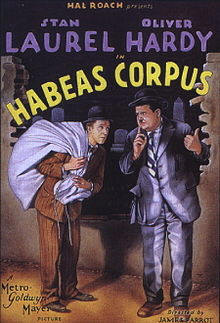
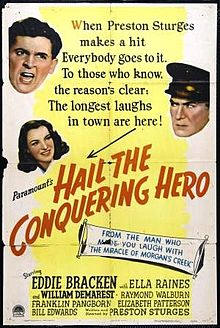

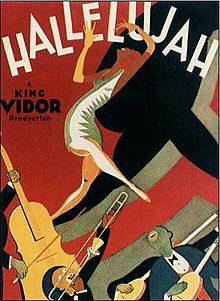

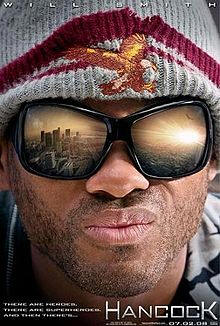
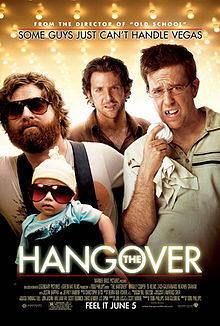
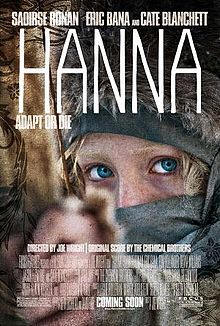
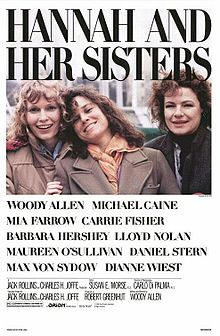
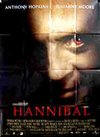
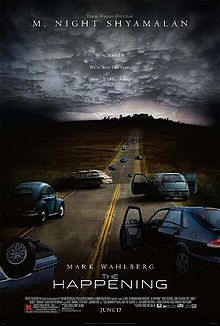

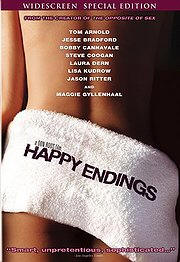

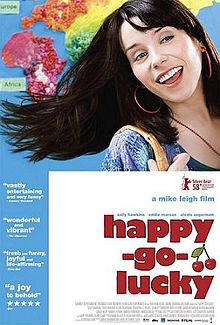
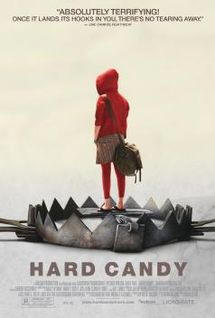

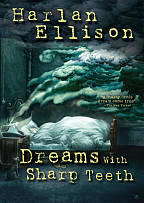



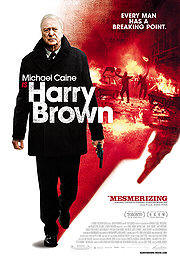
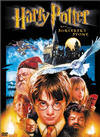


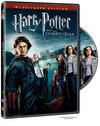
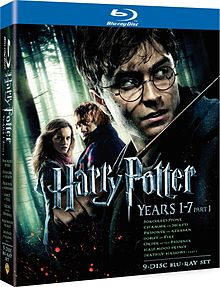

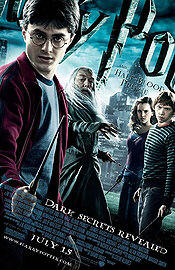




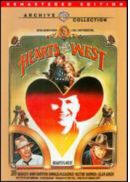
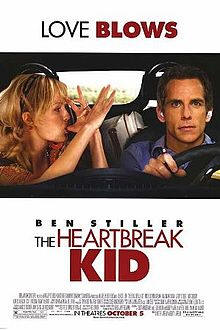



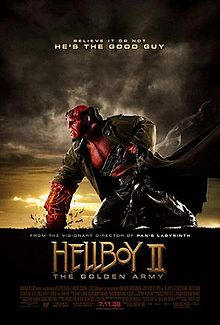
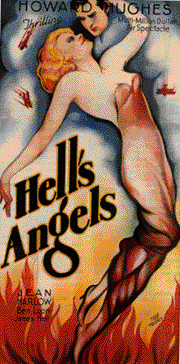
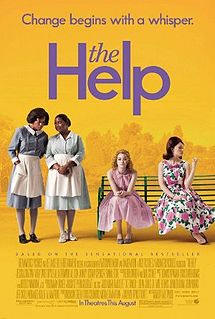
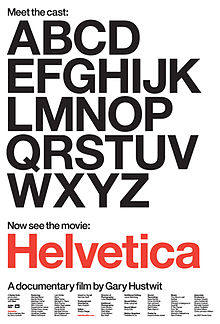
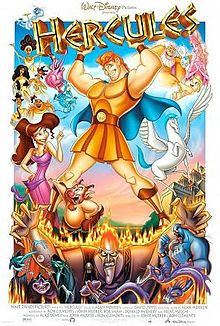
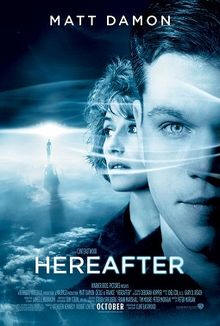

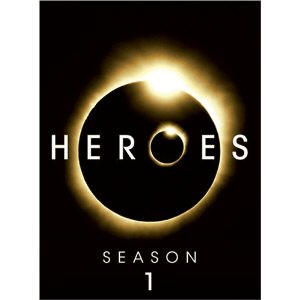


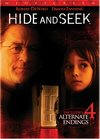

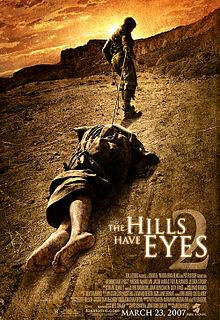




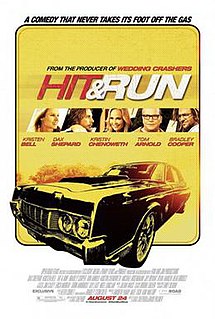
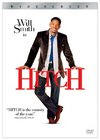


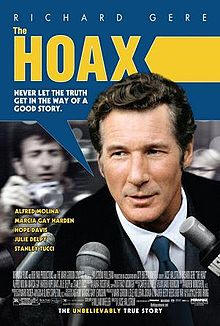
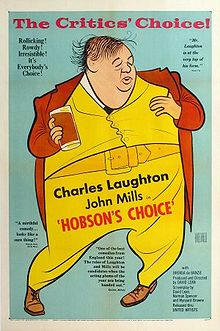
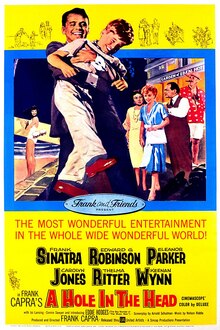


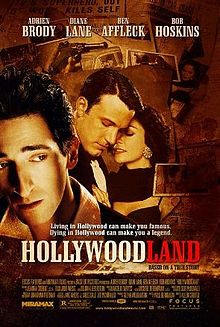

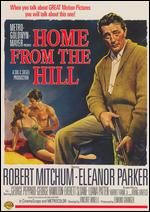


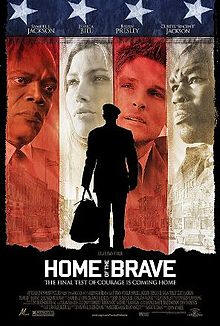
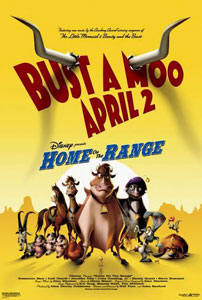
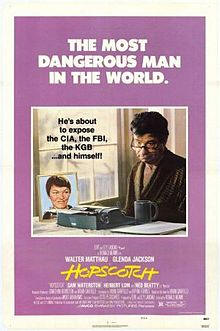
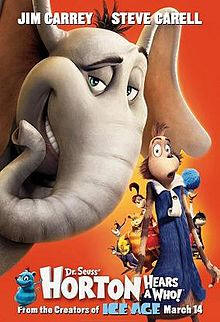

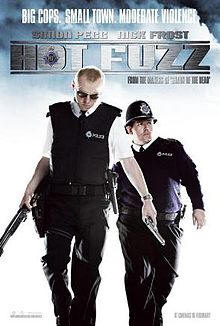
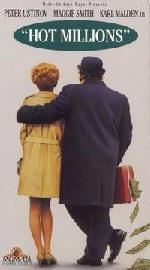


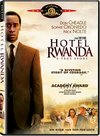

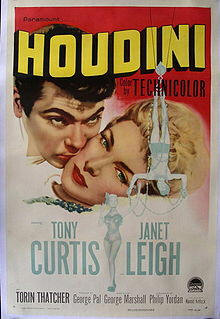




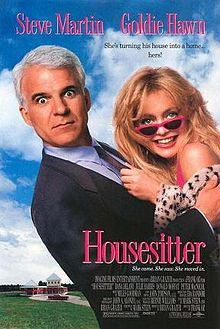


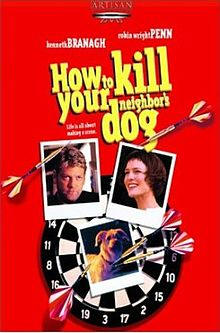
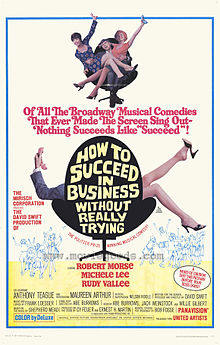
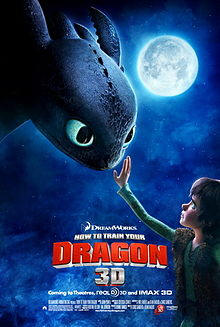
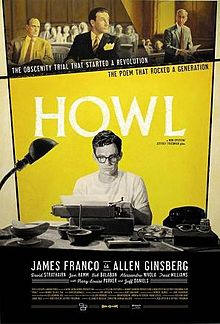

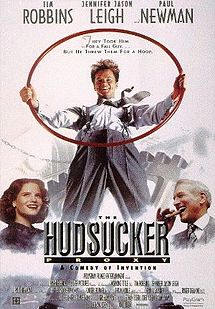
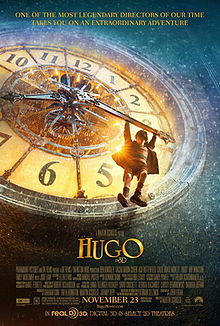



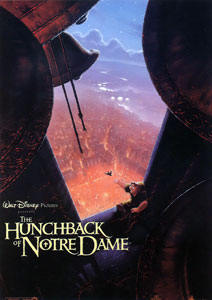



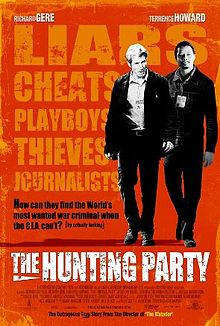
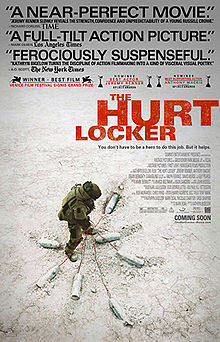
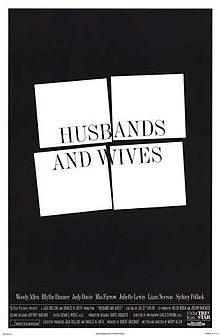

.jpg/220px-Hysteria_(2011_film).jpg)

